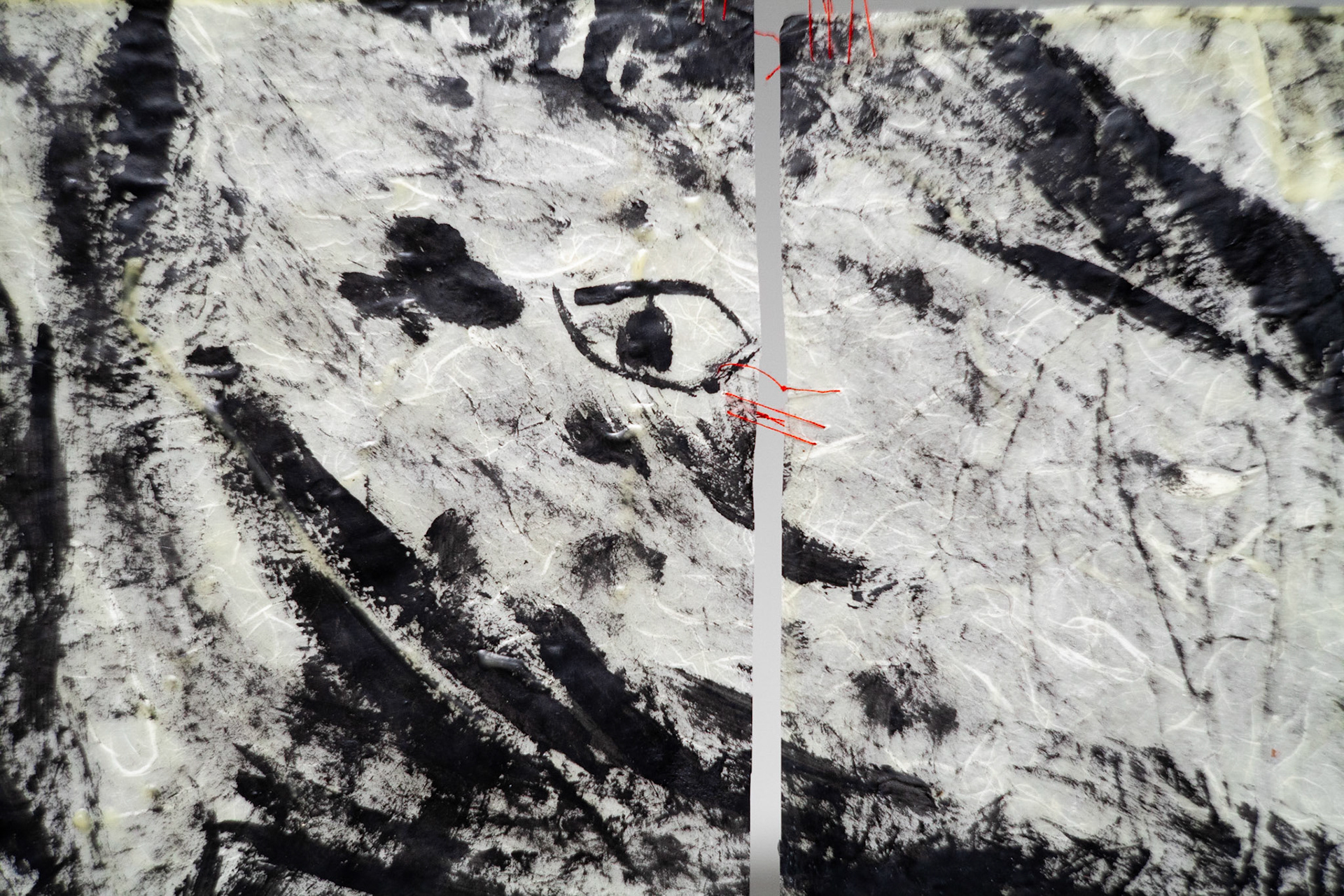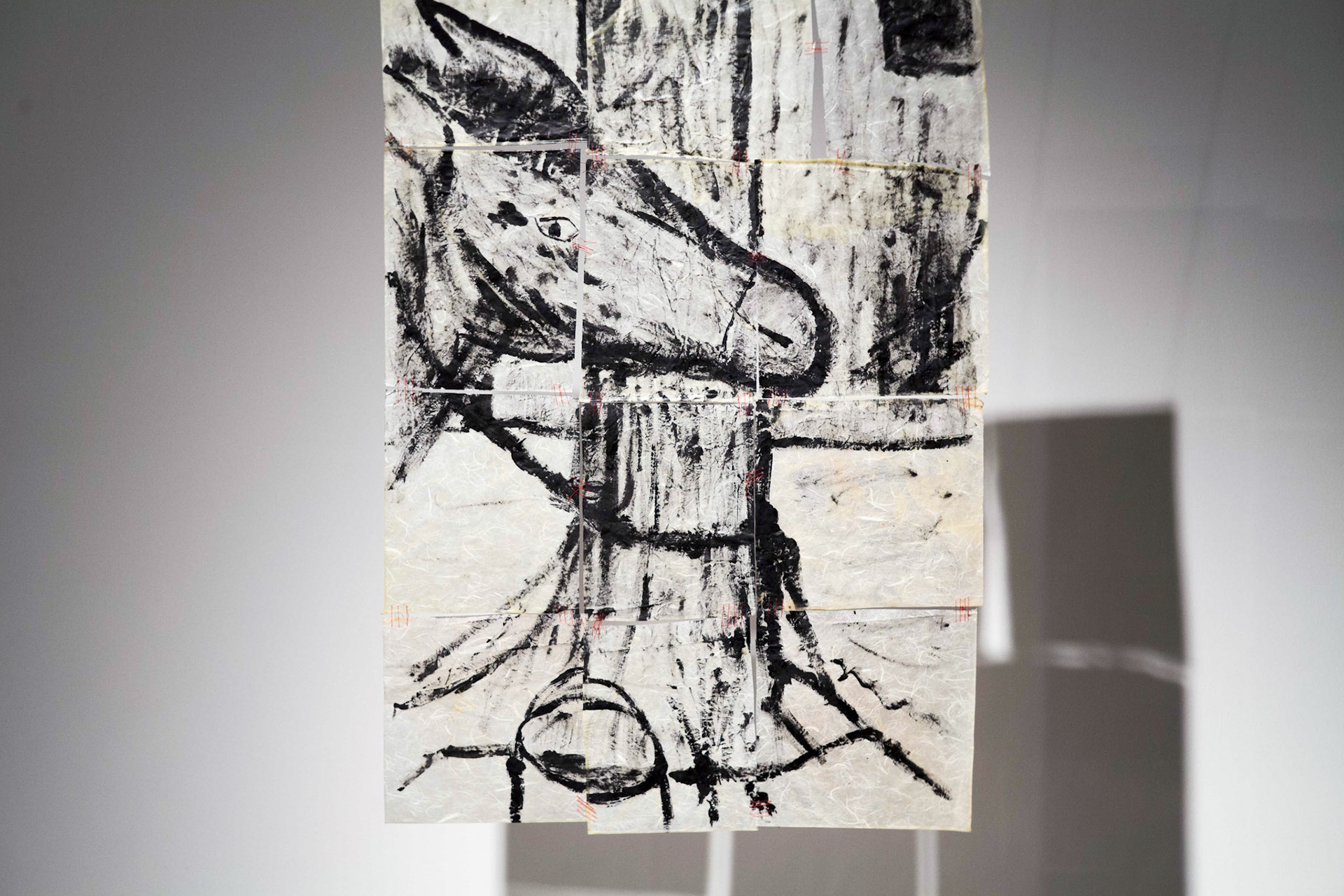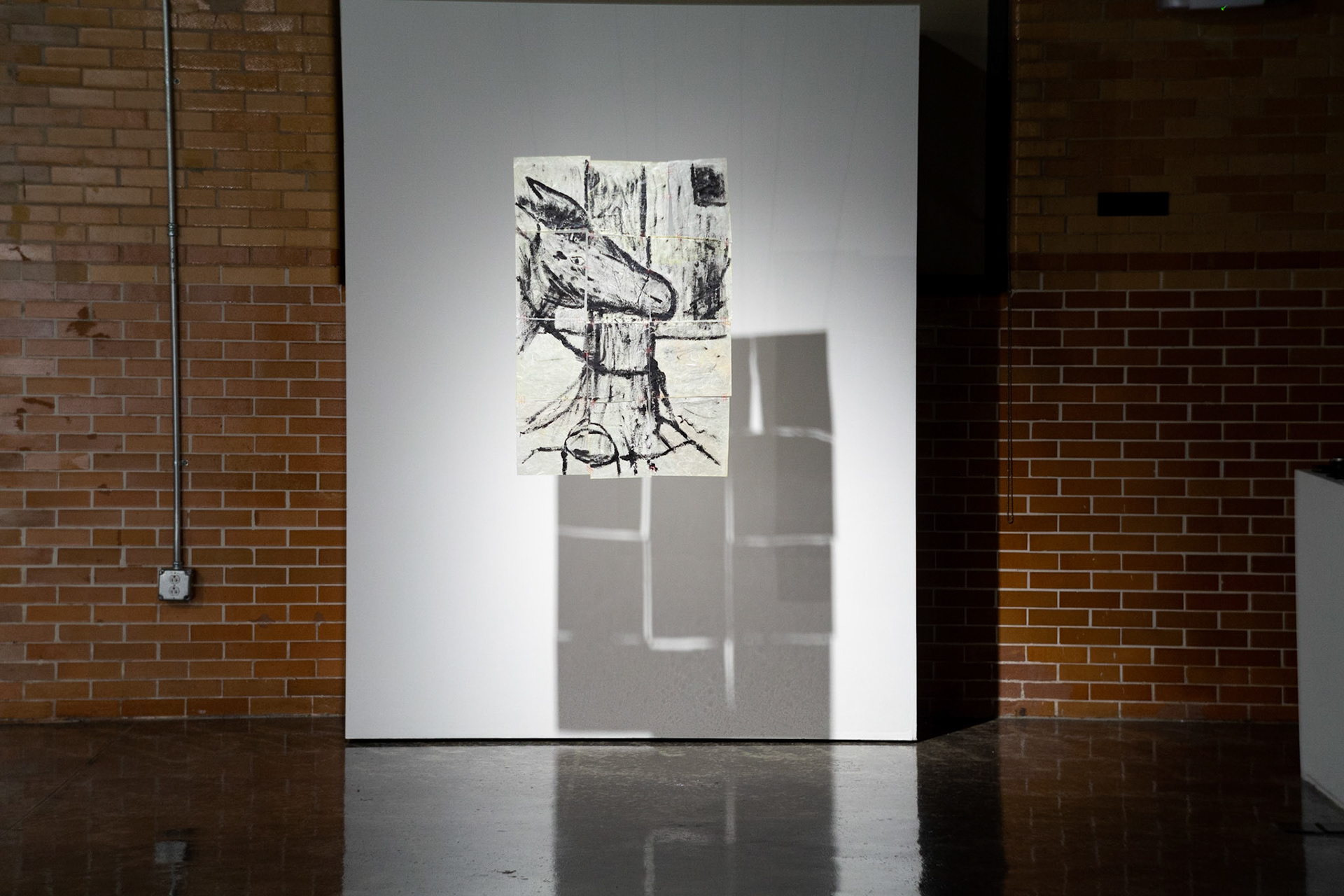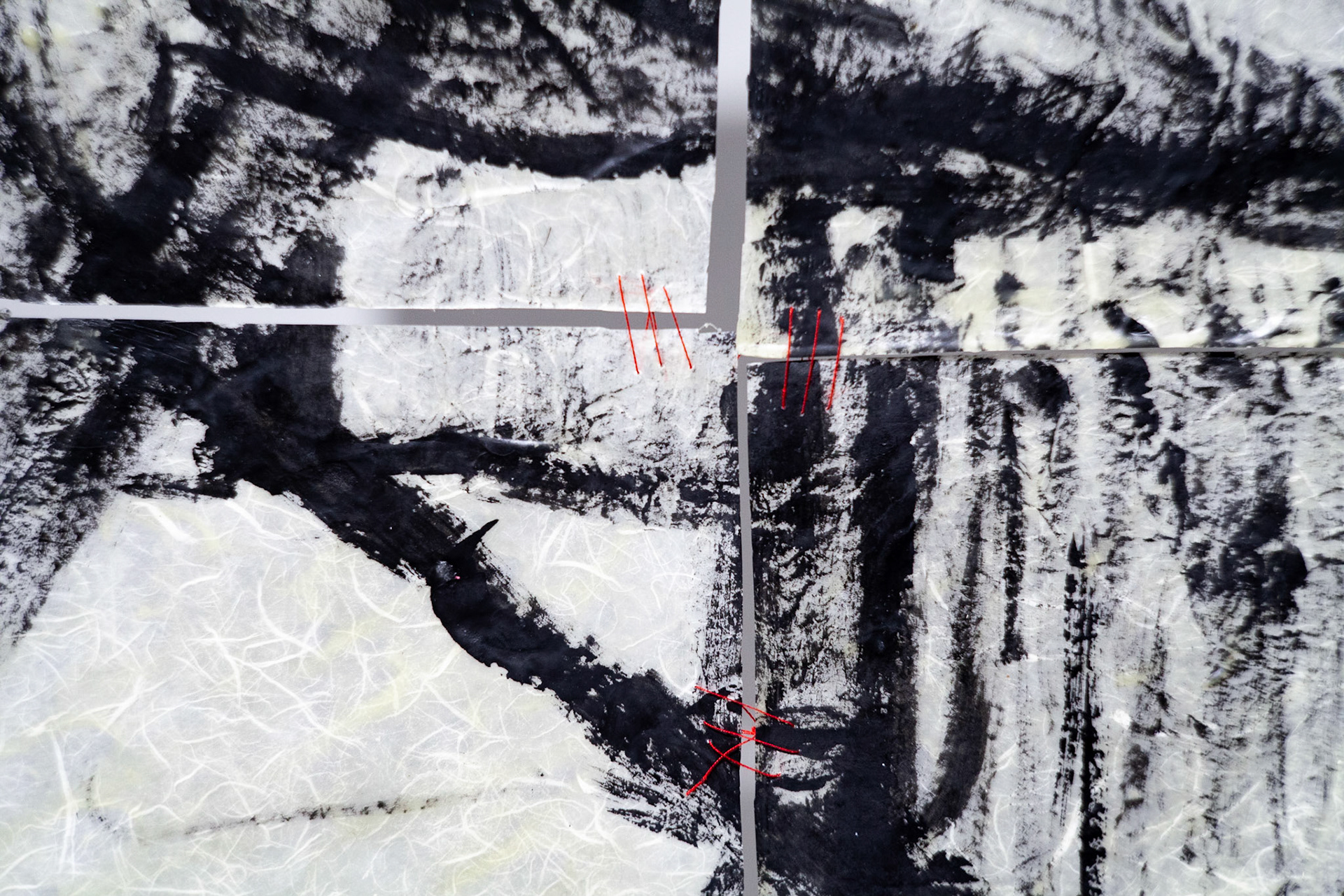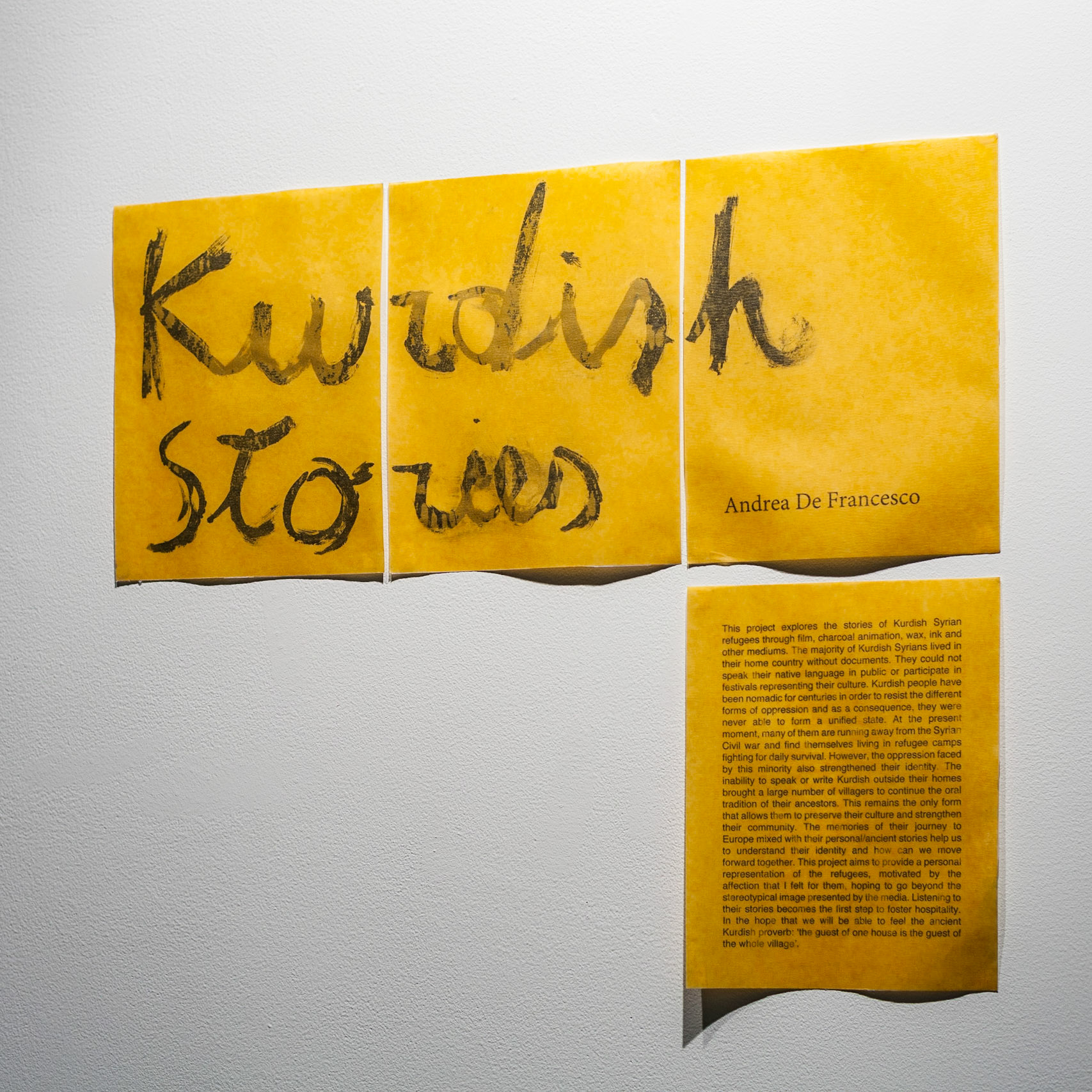
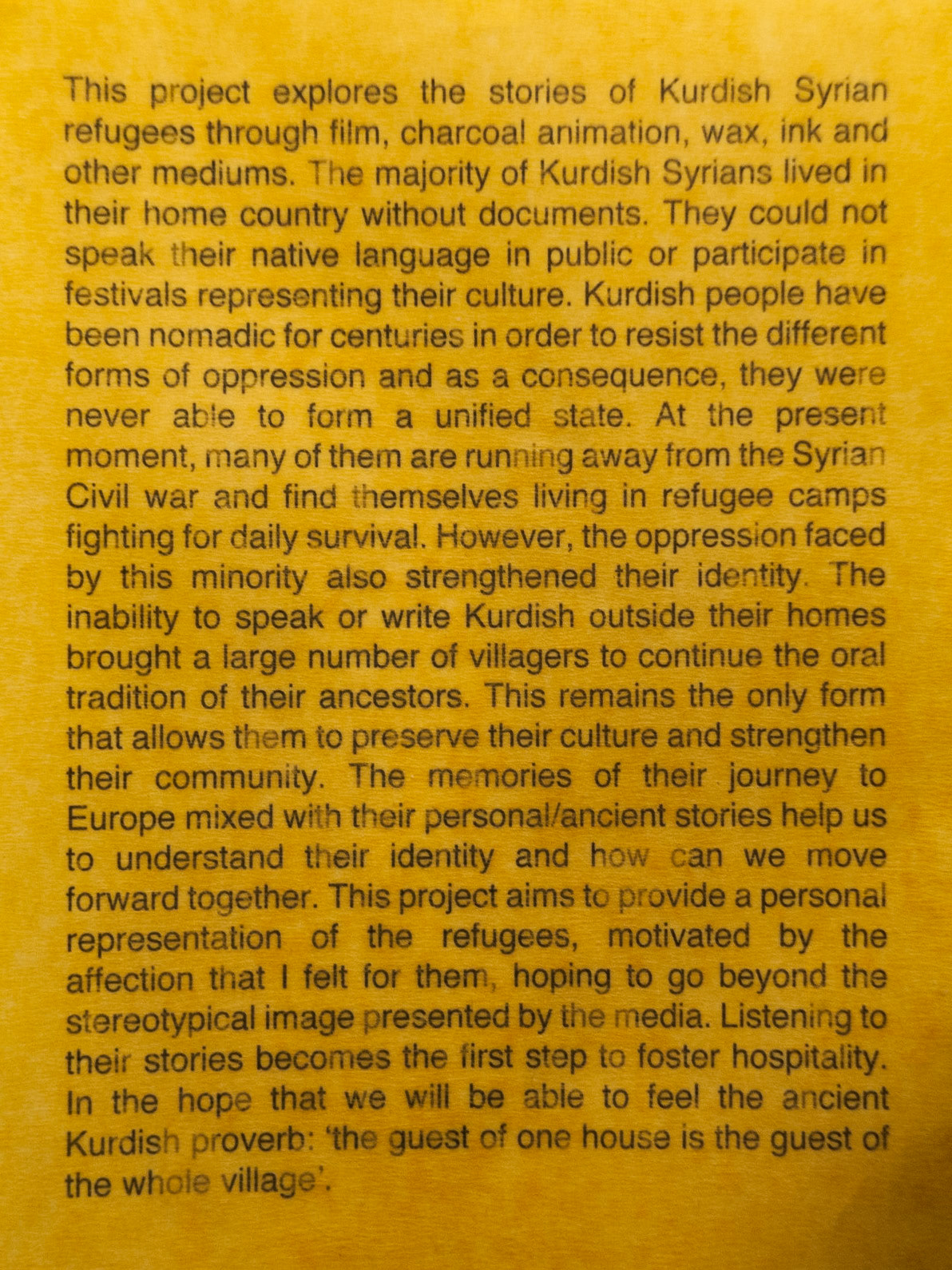
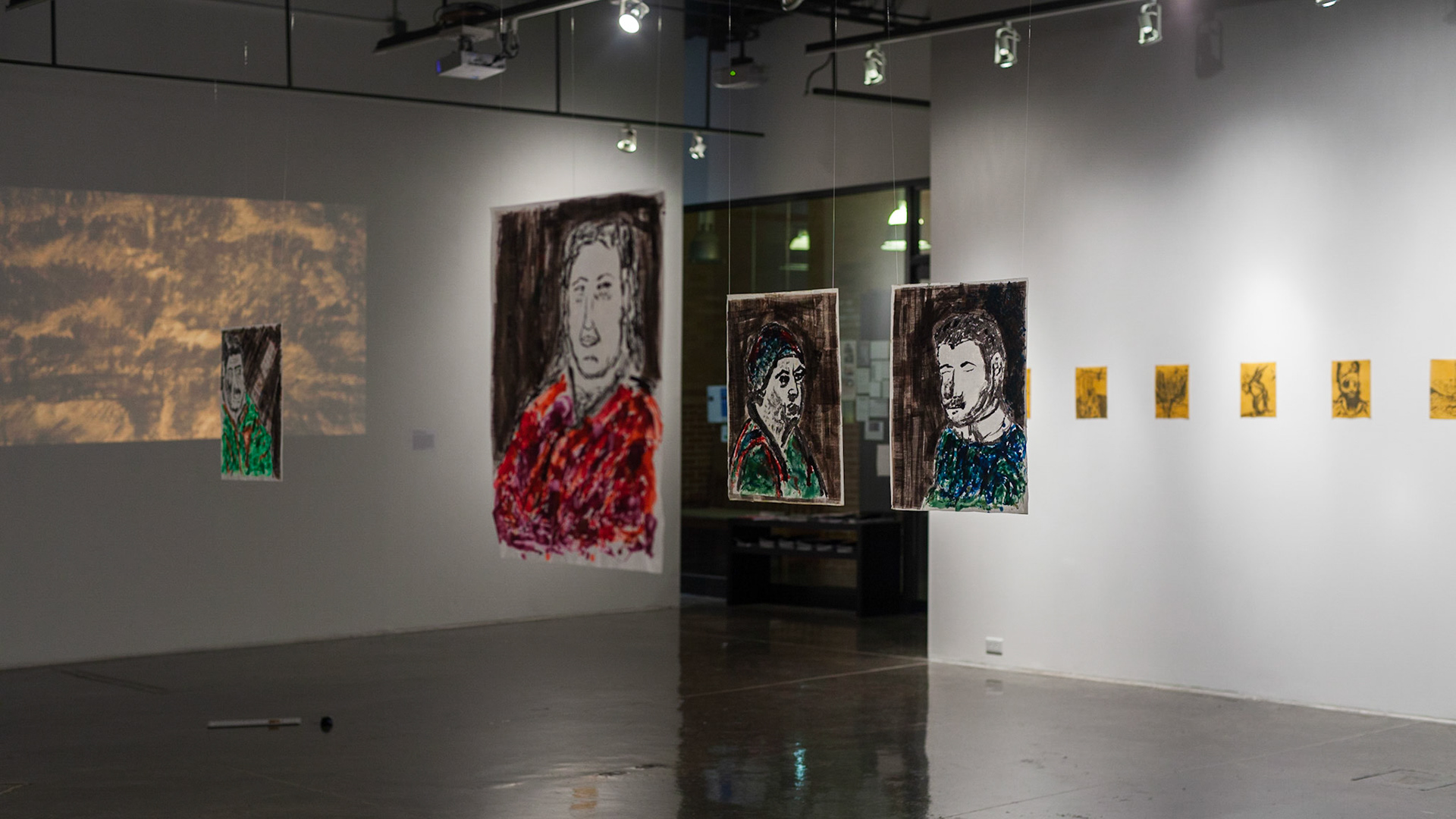
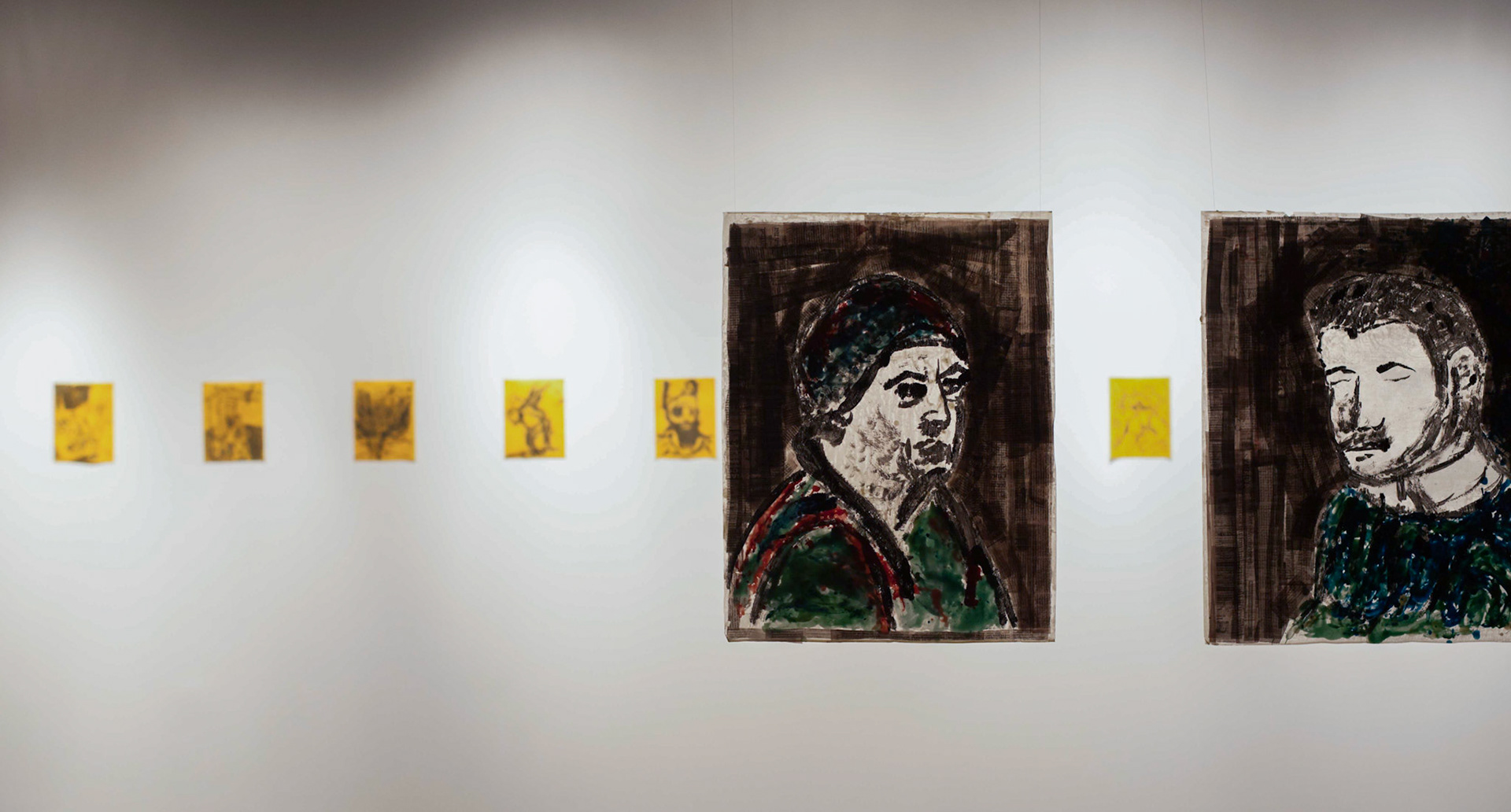
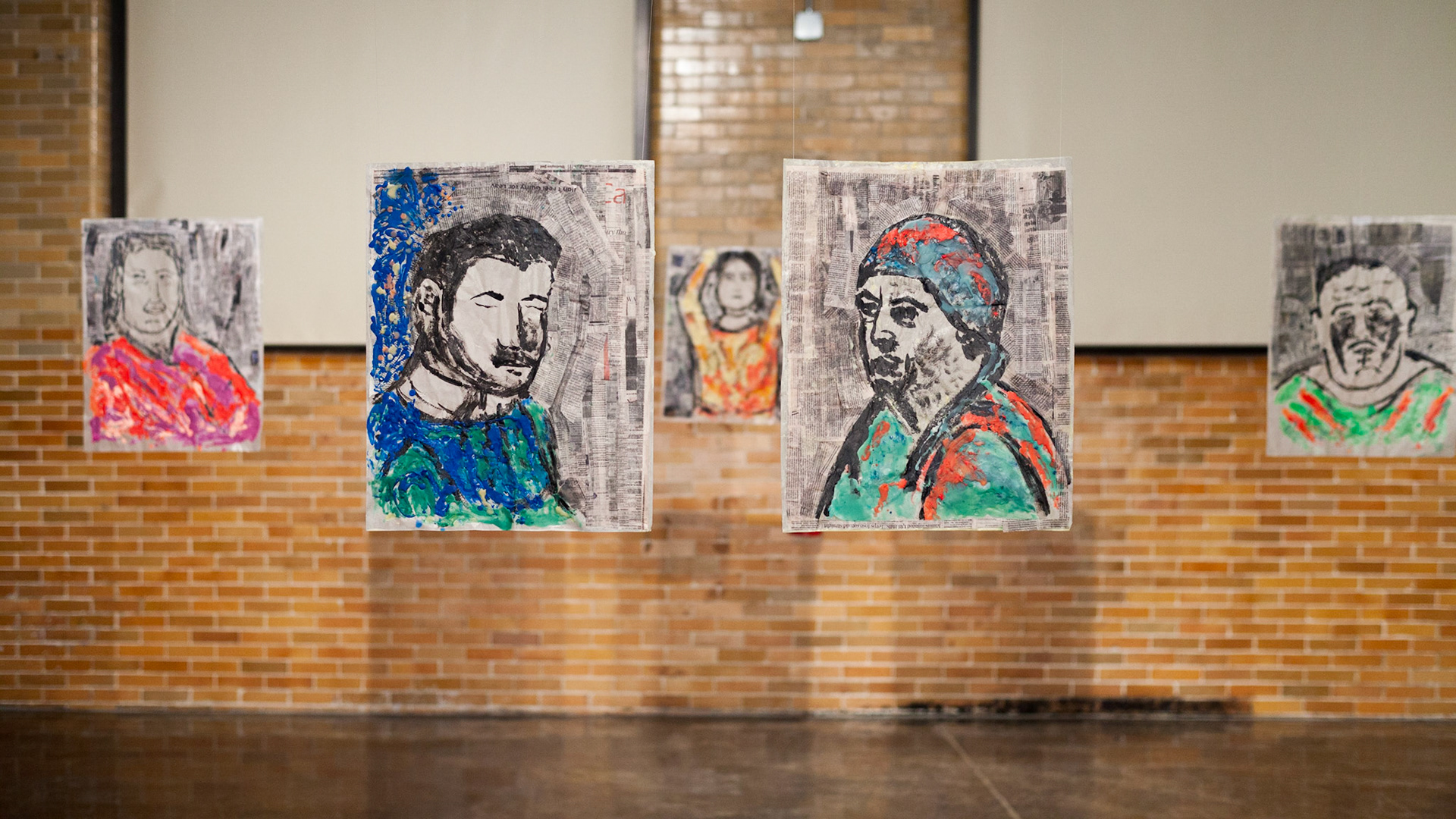
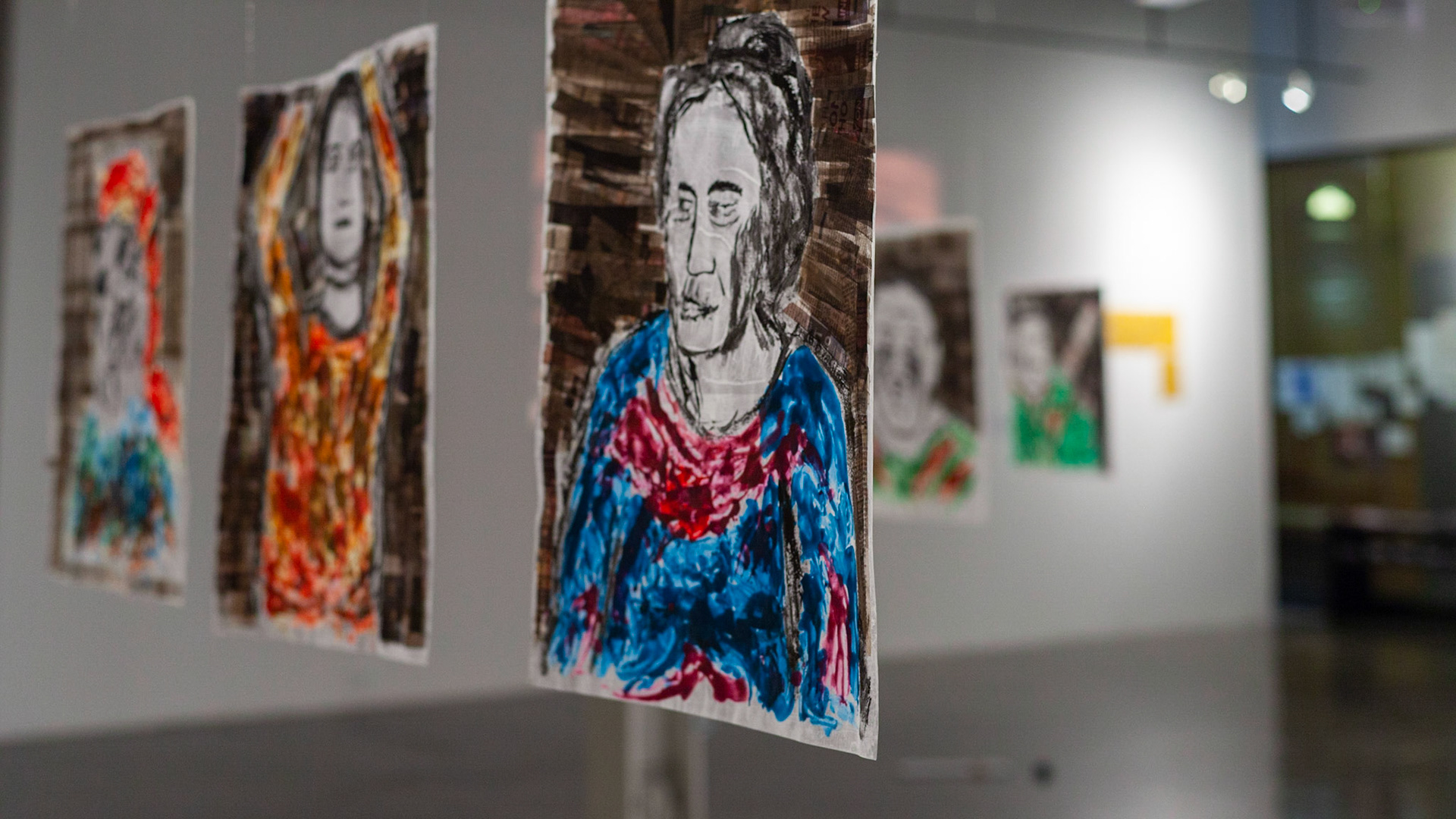
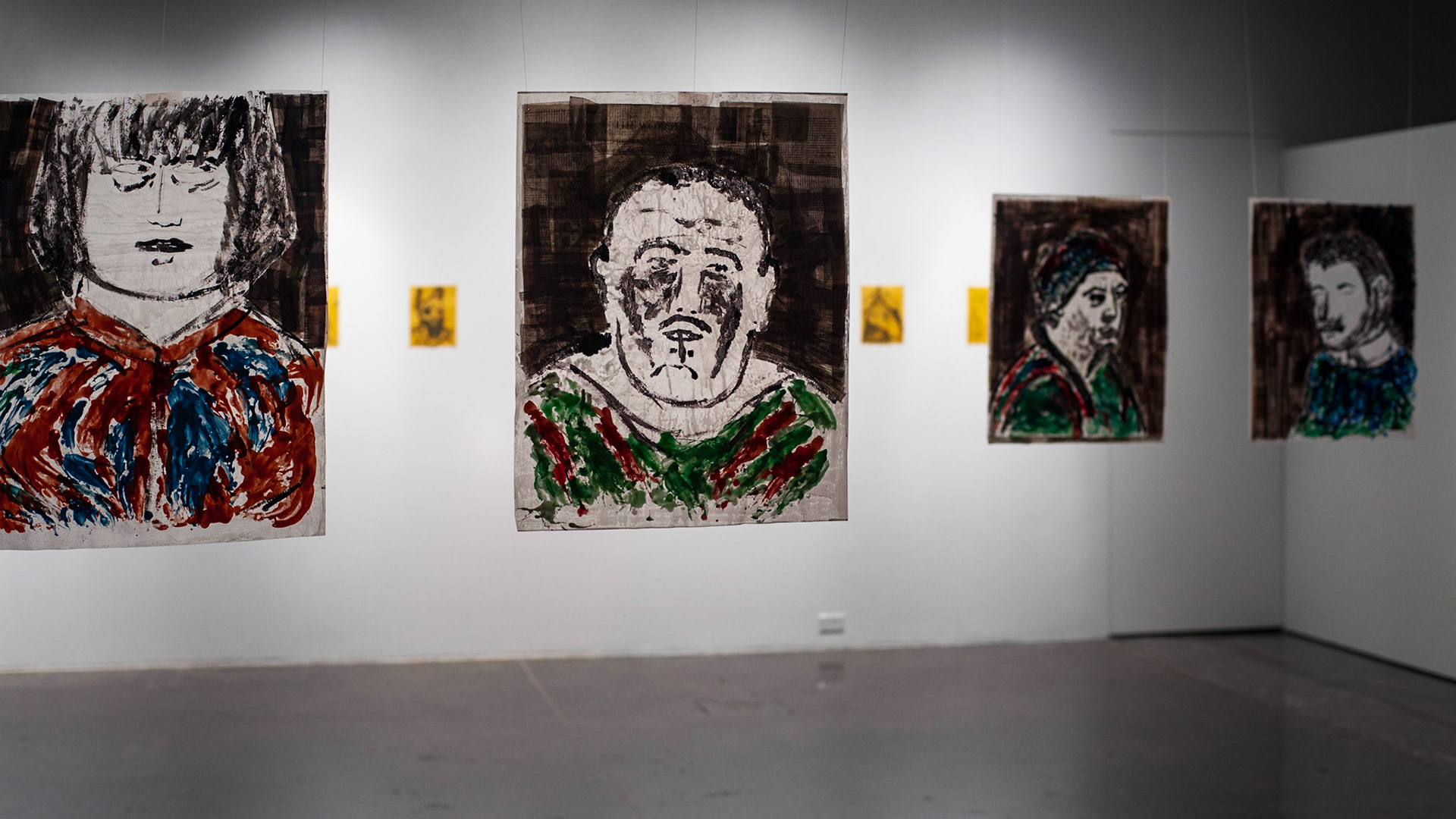
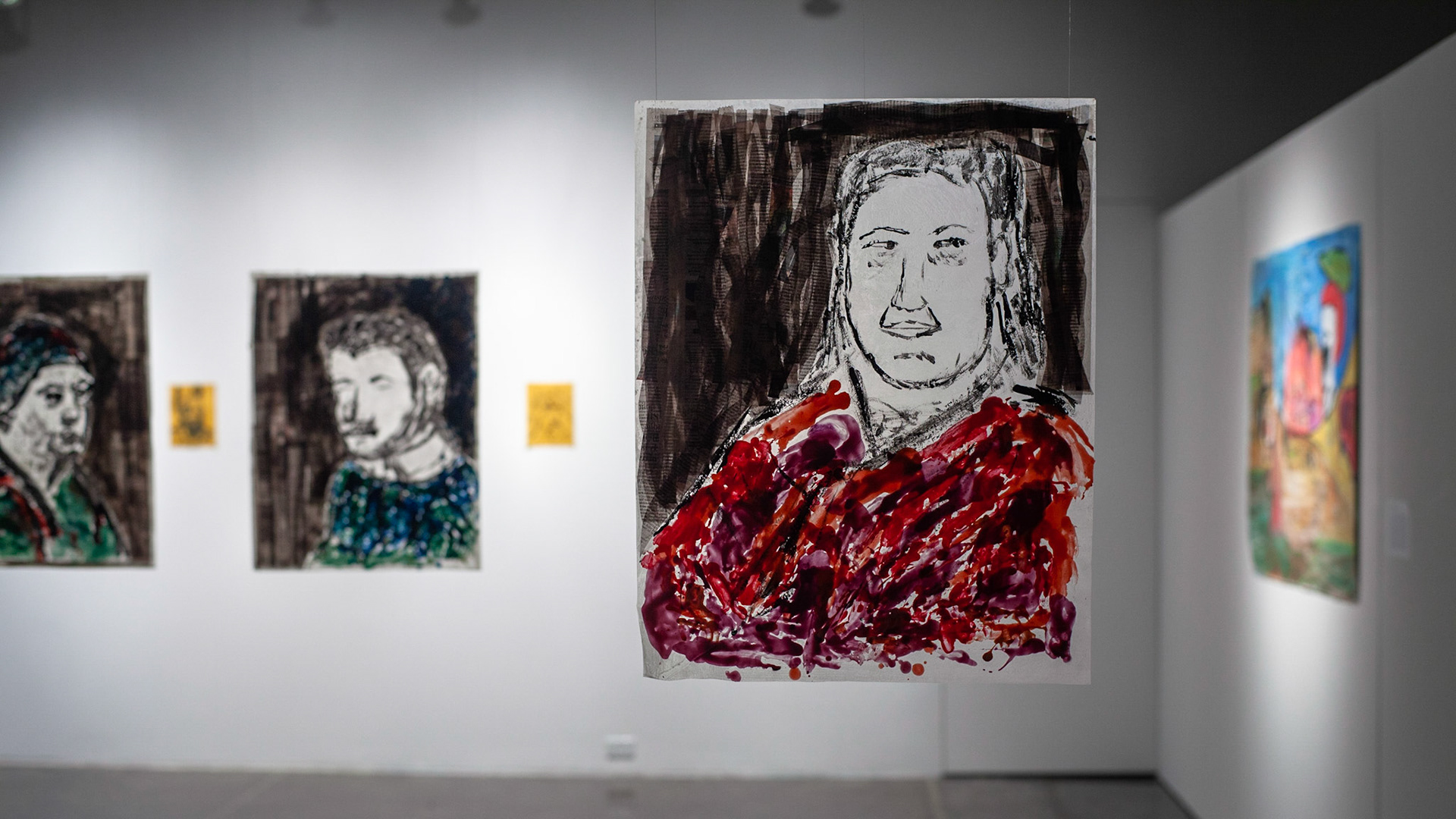
SYRIAN REFUGEE PORTRAITS
Newspaper cuts, wax, and ink on vellum paper.
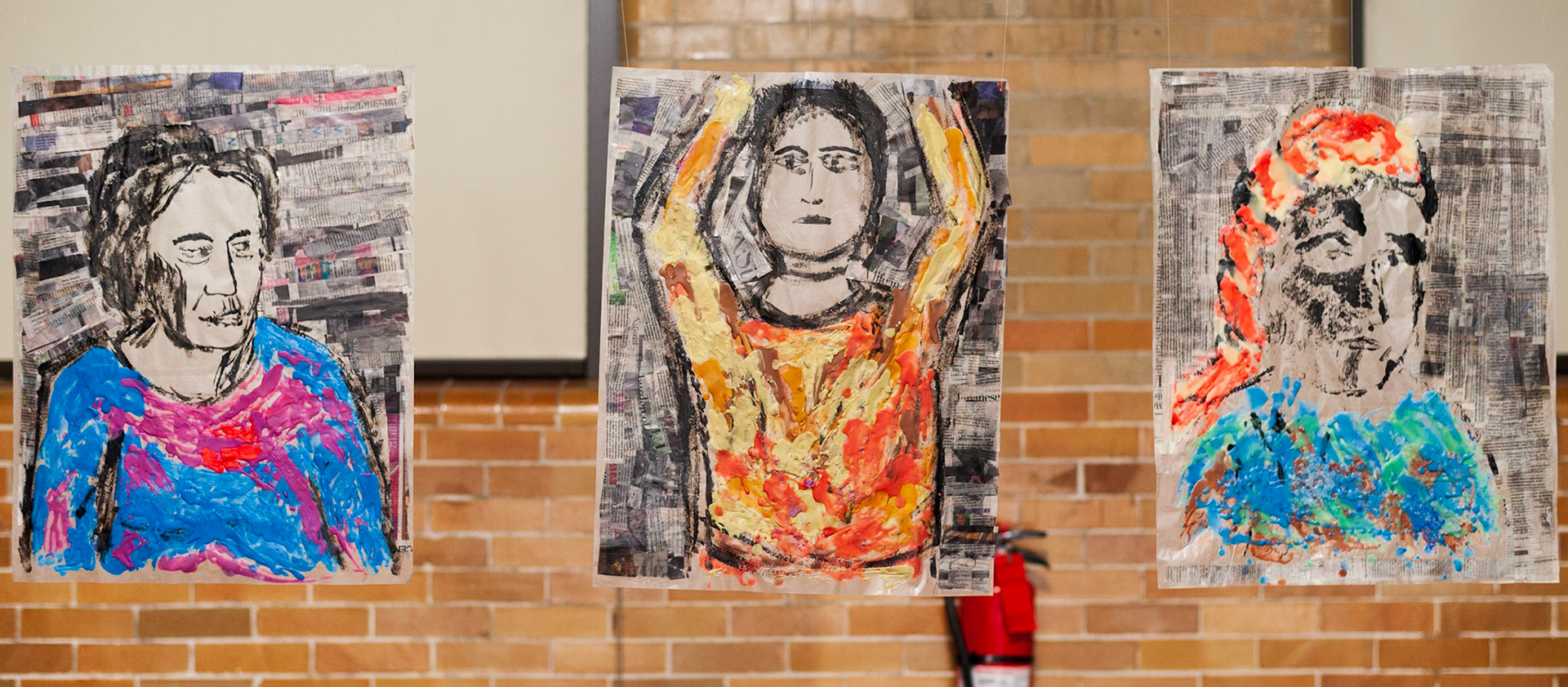
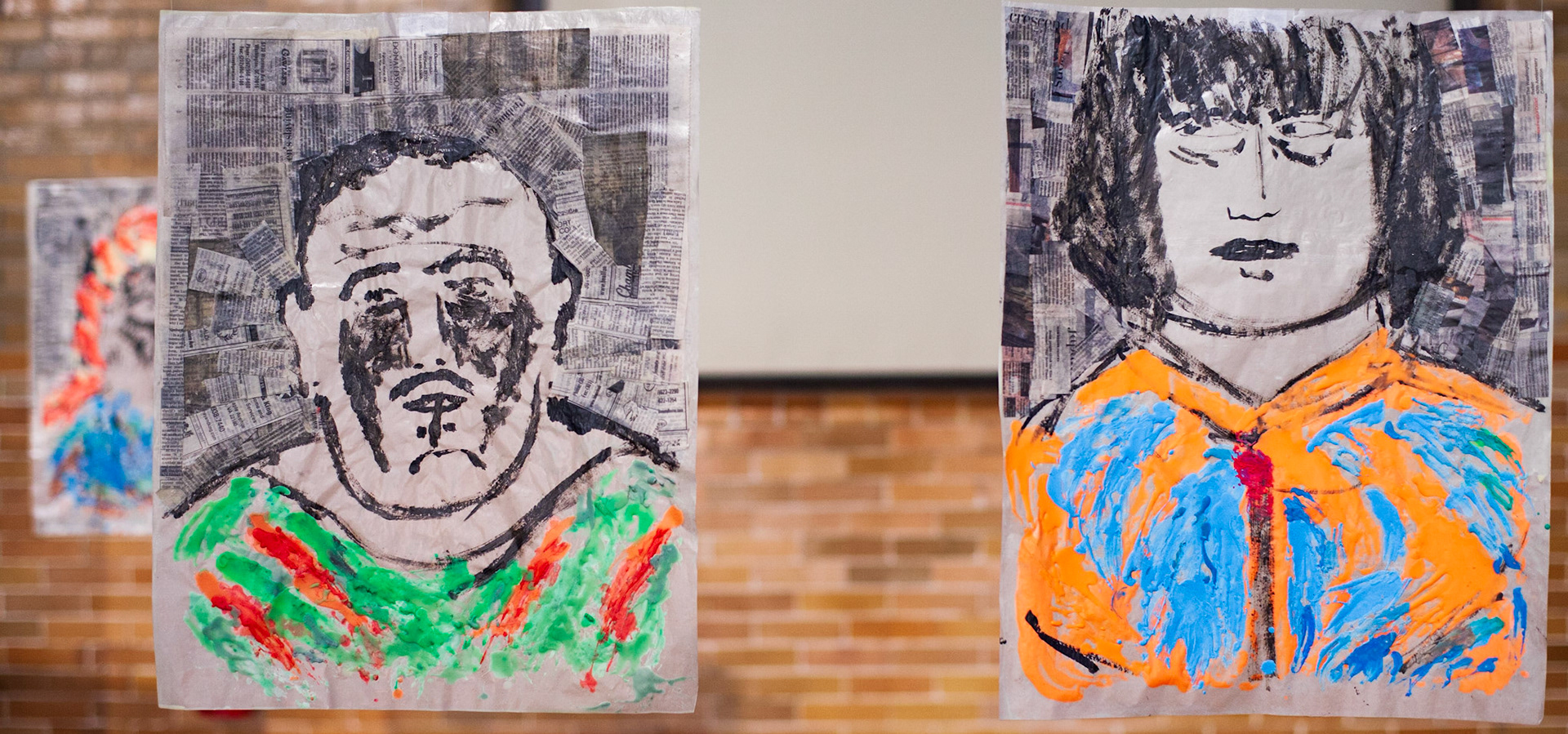
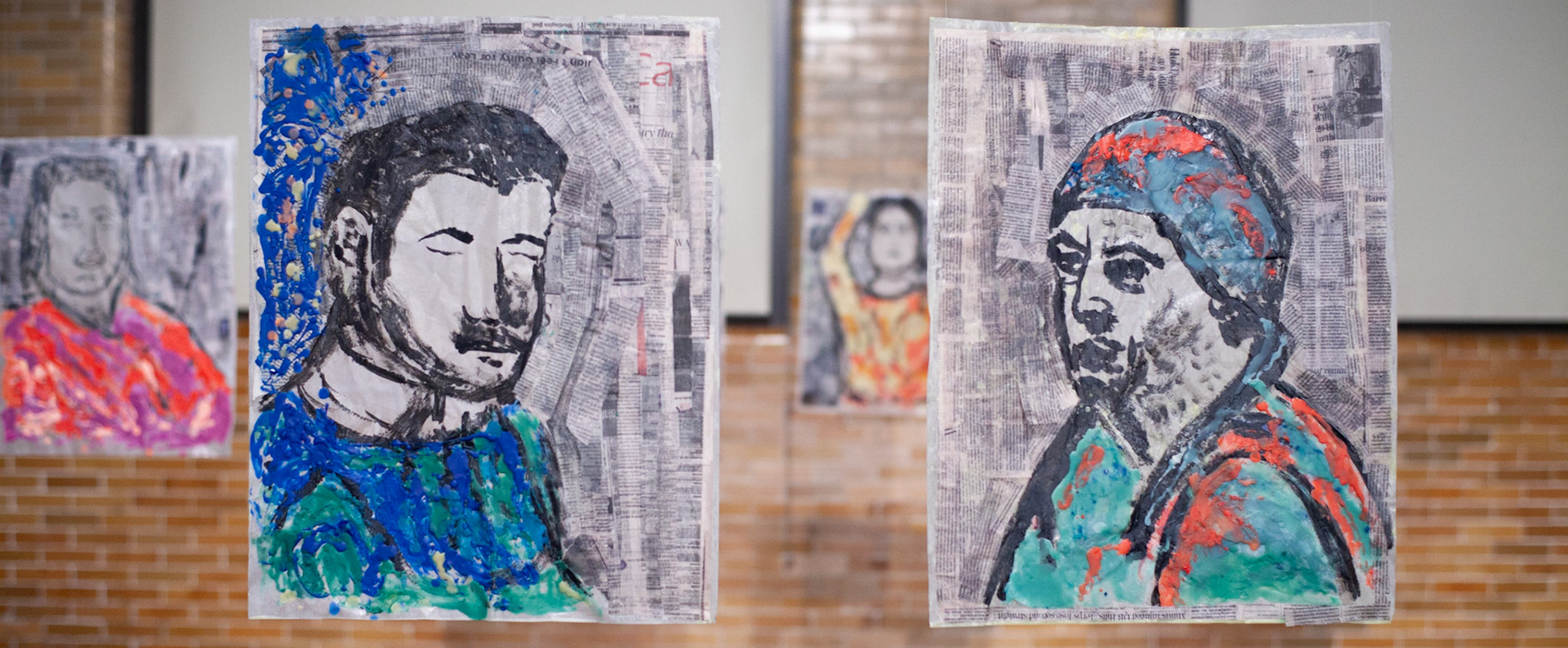

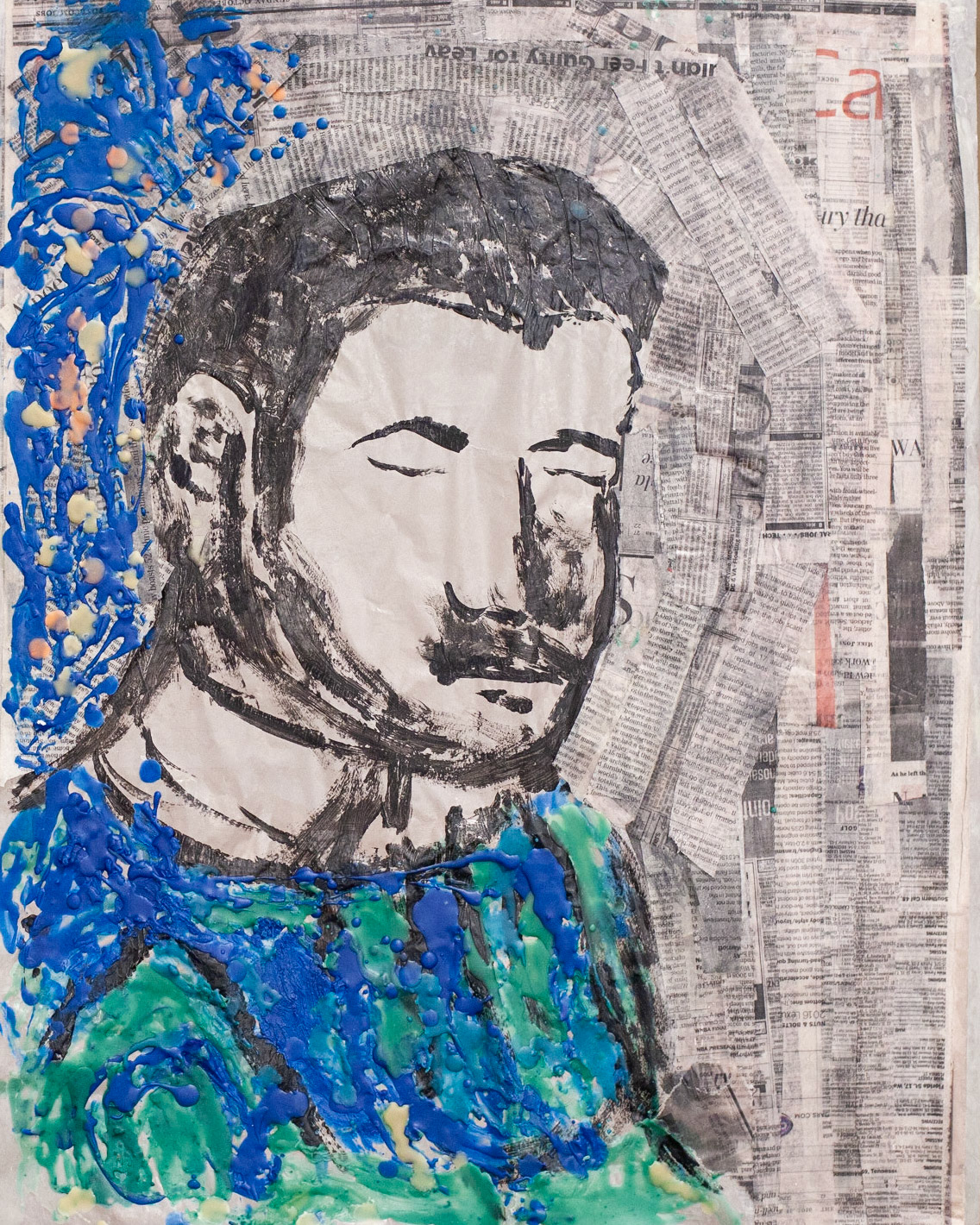
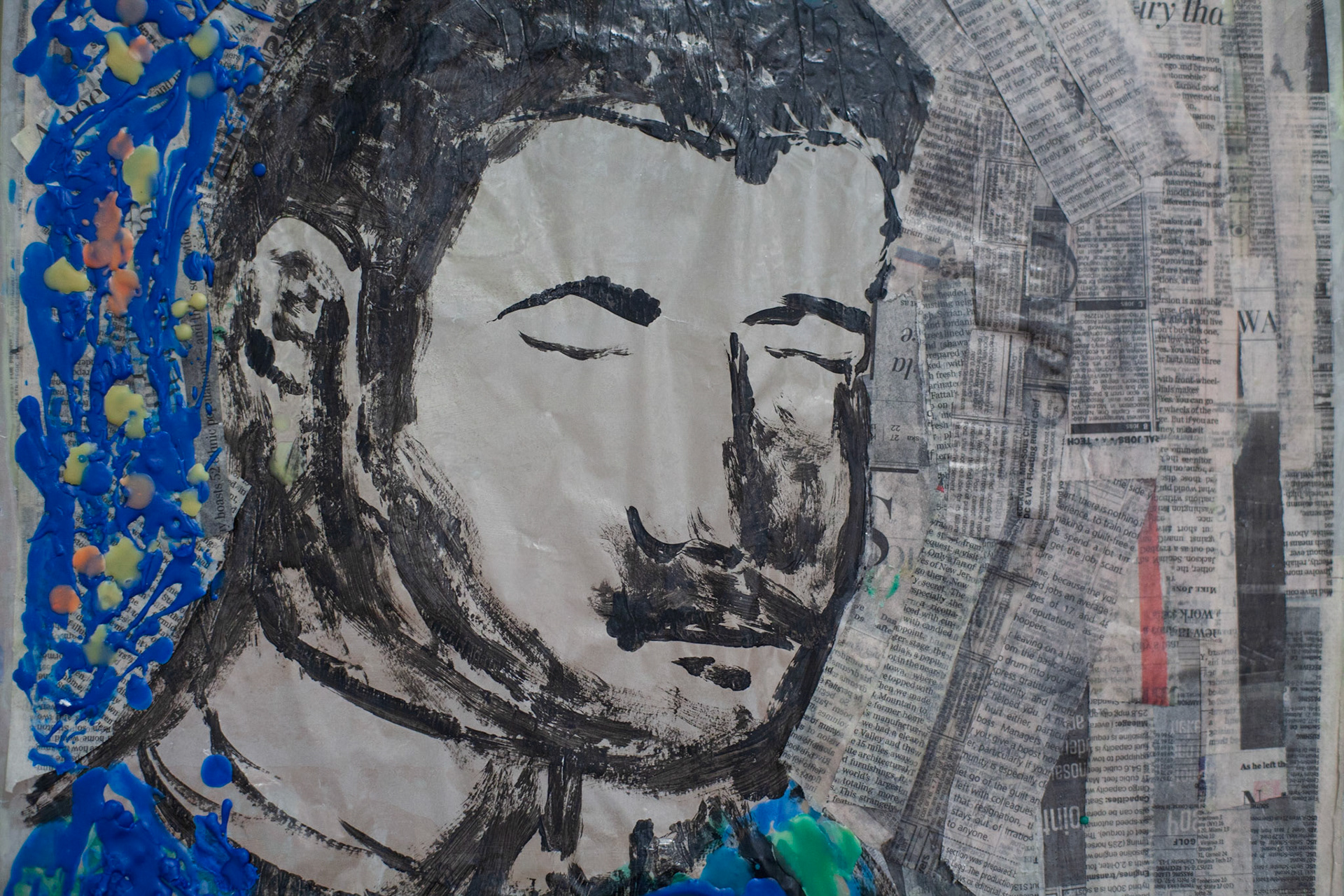
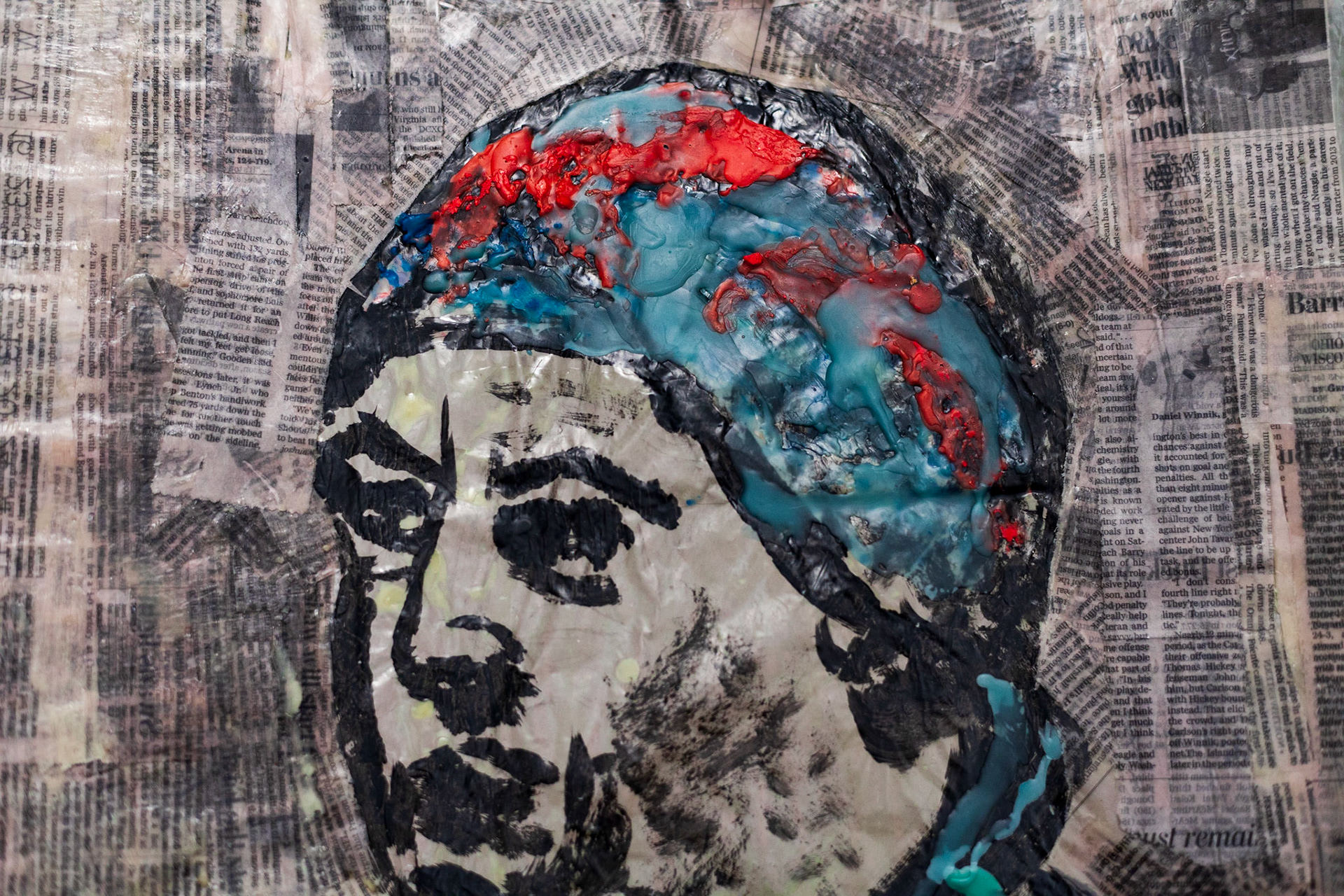
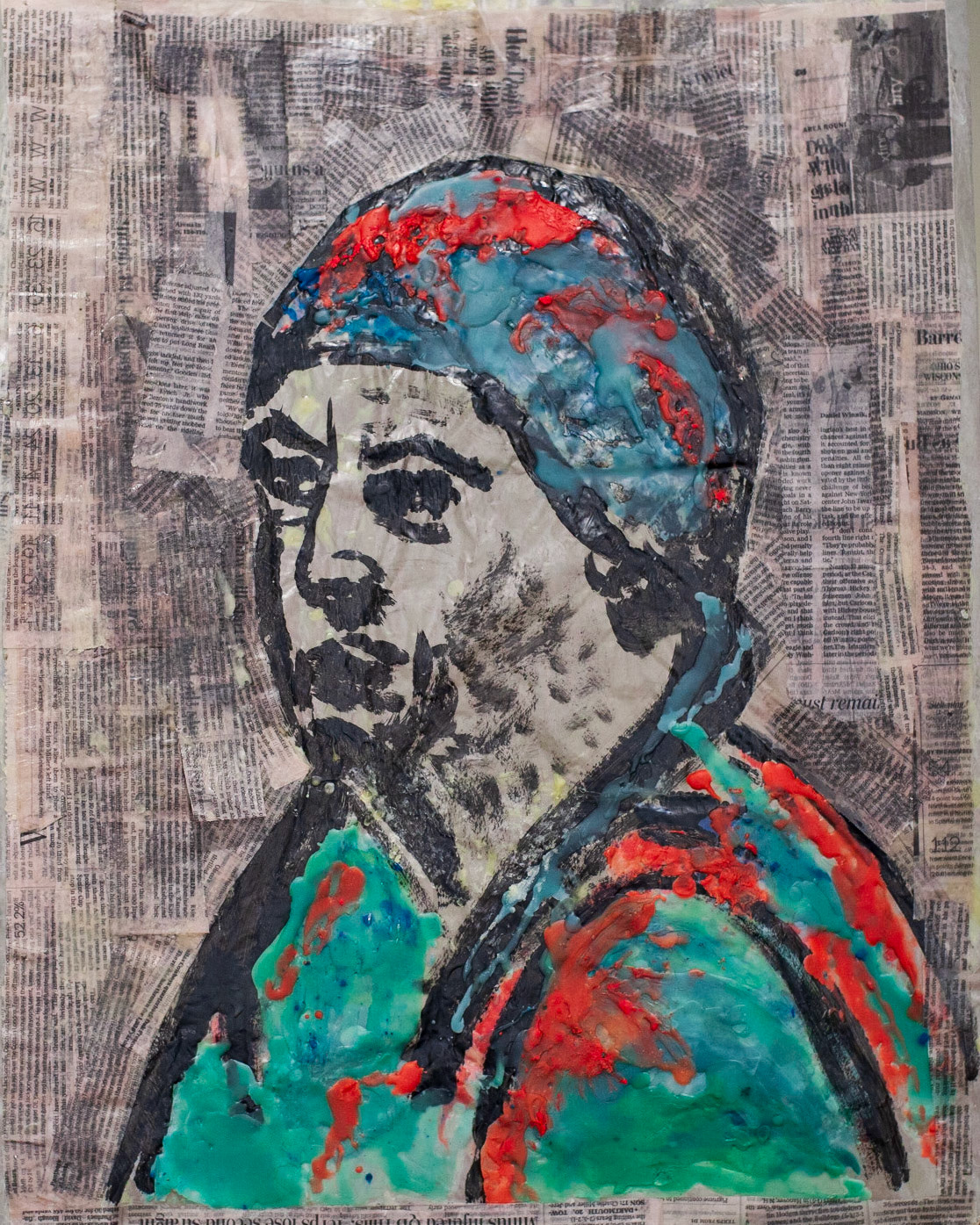
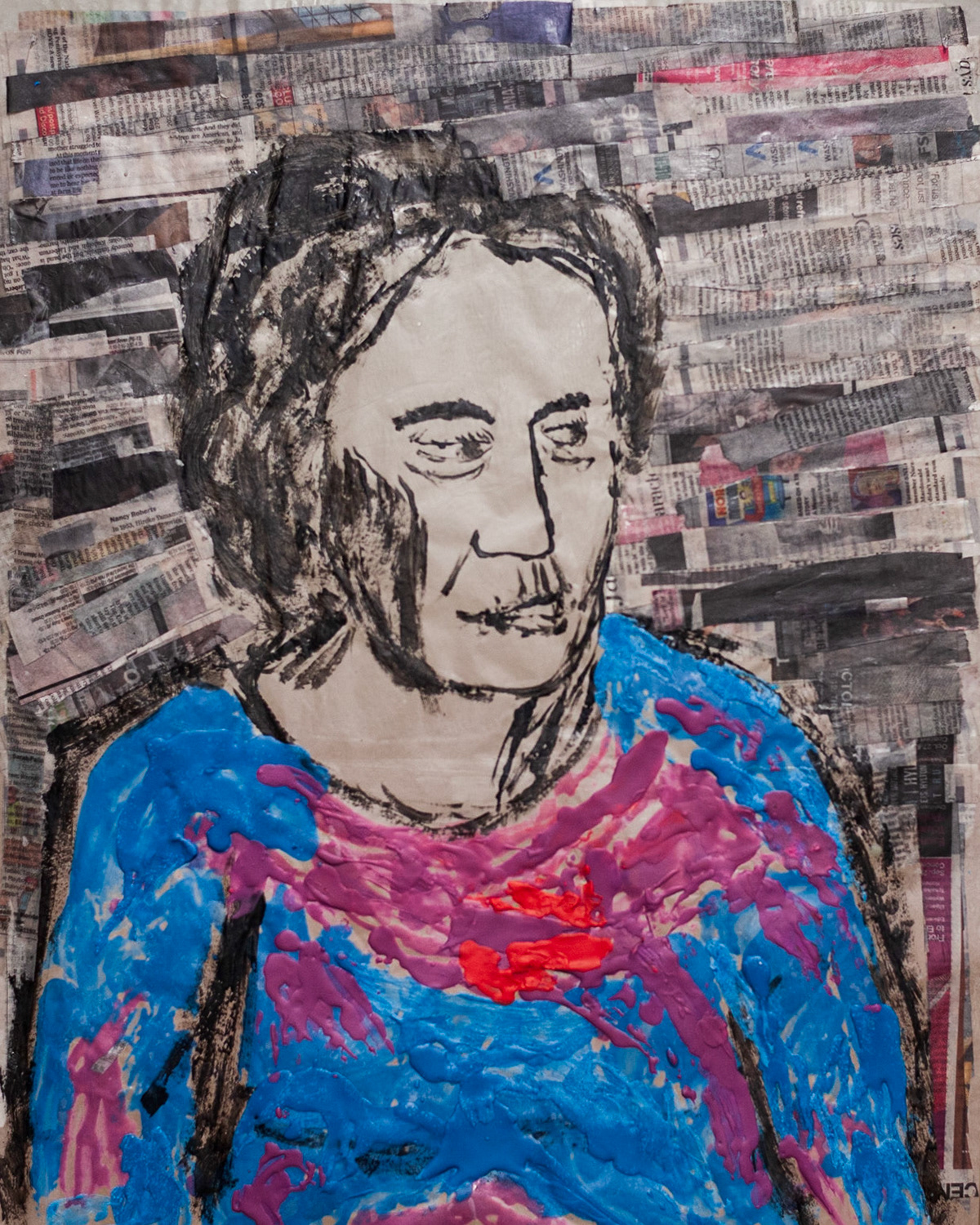
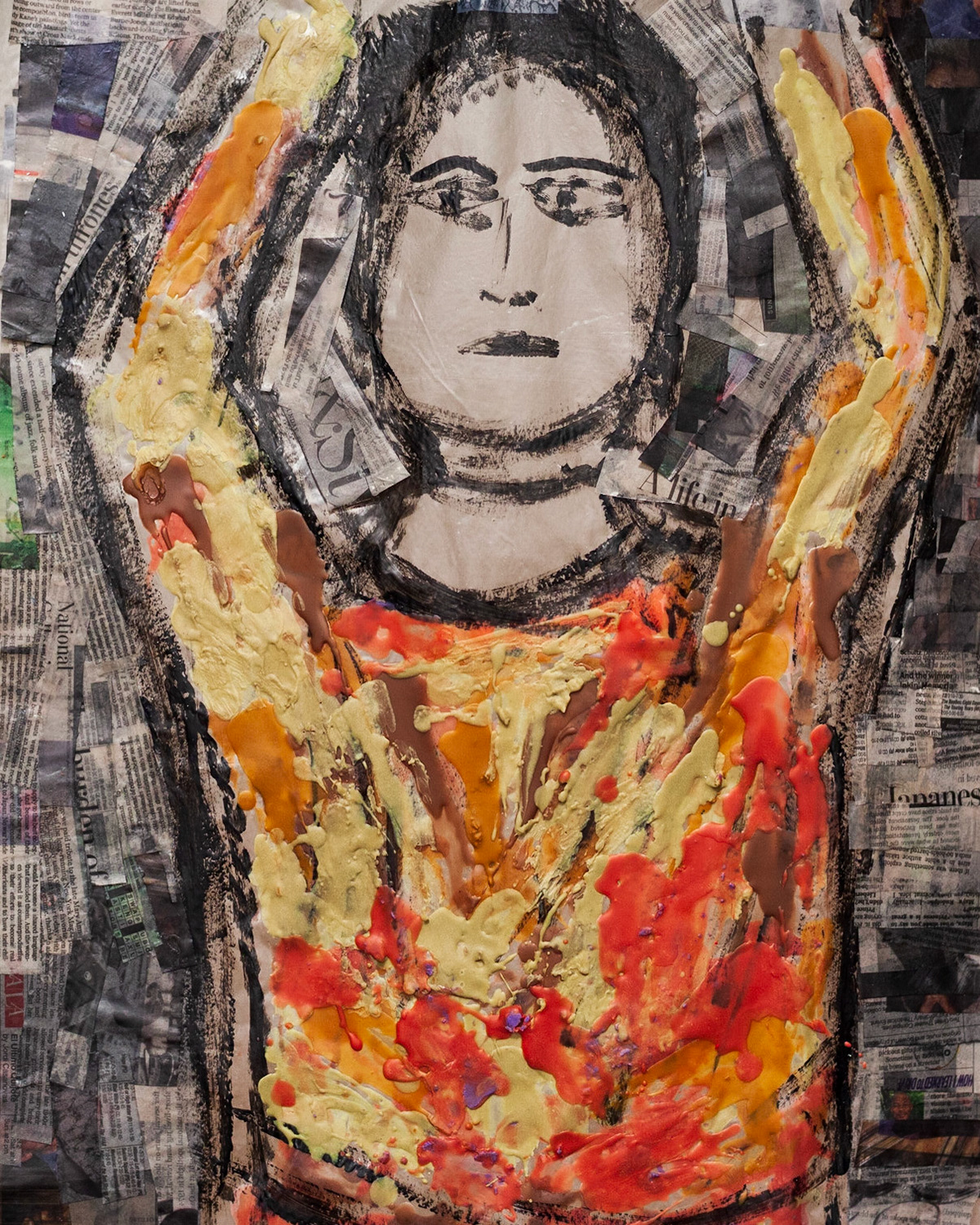
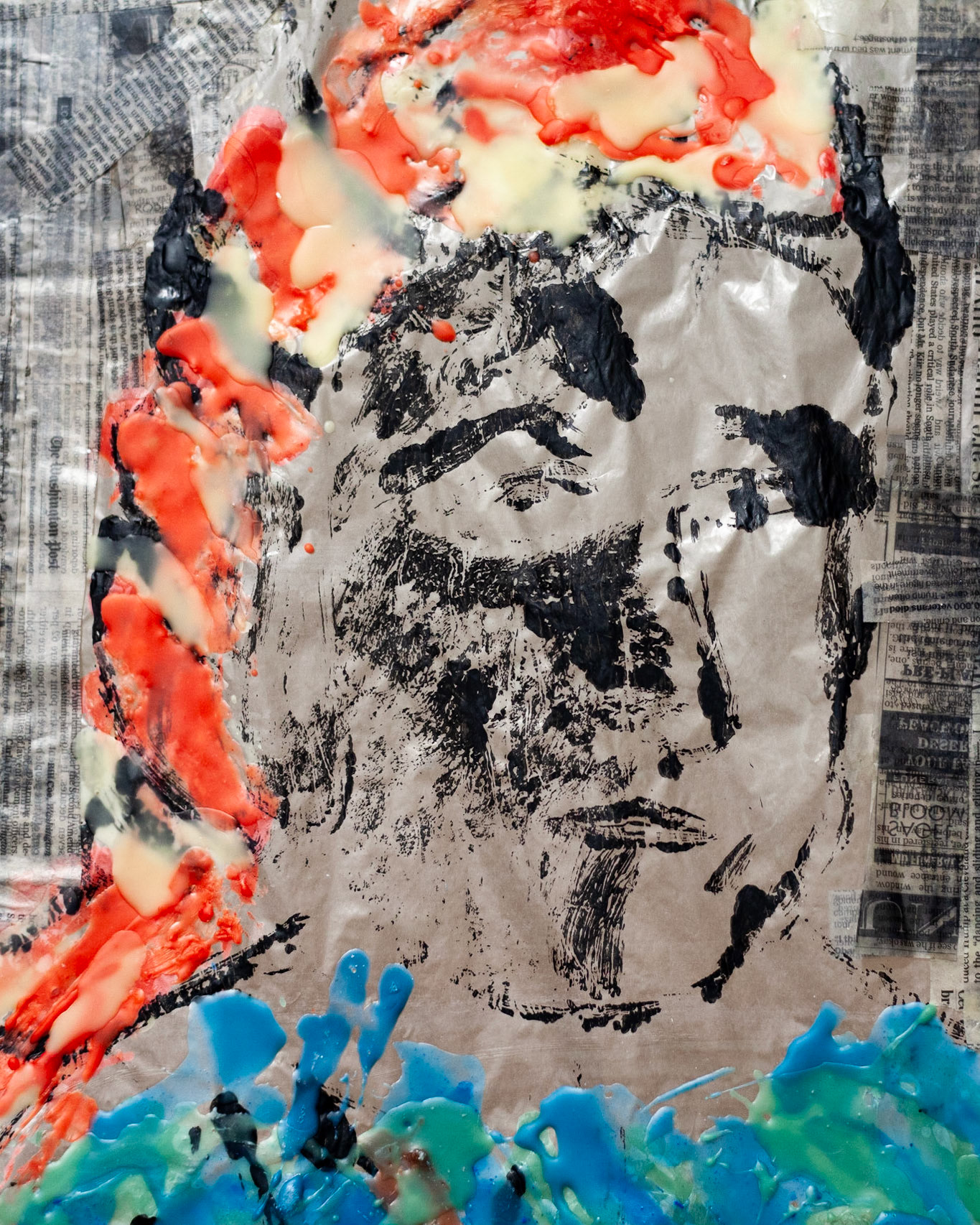
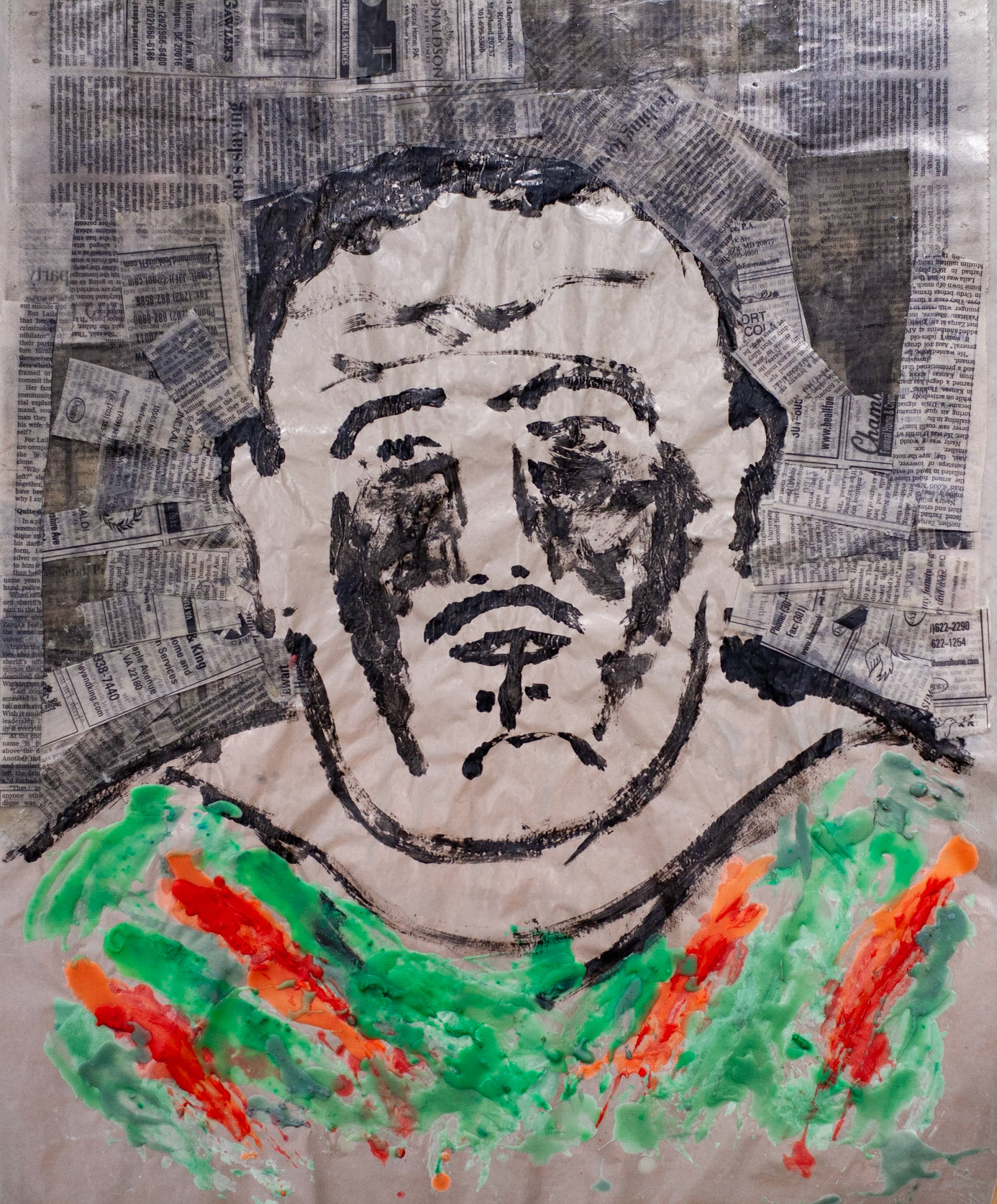
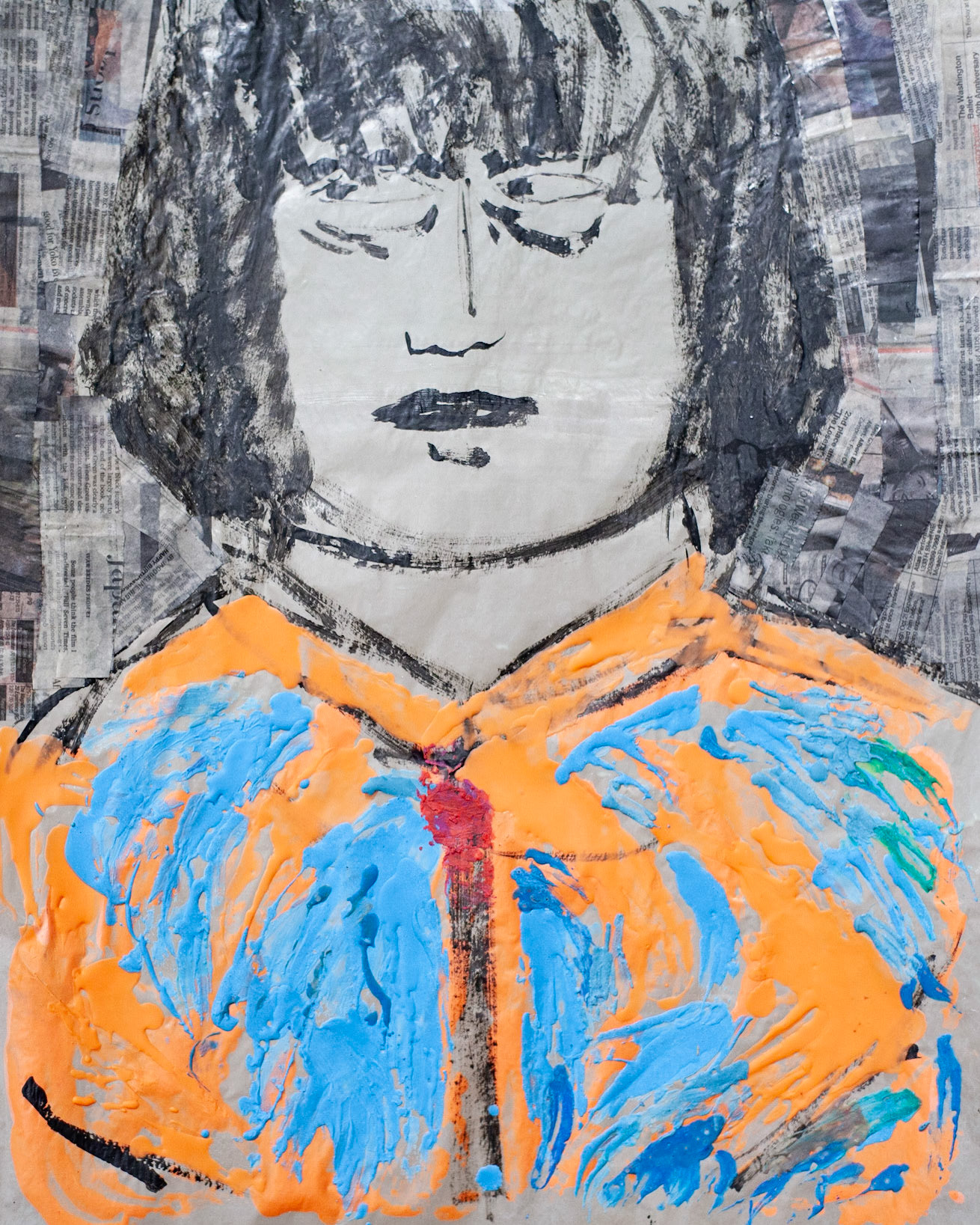
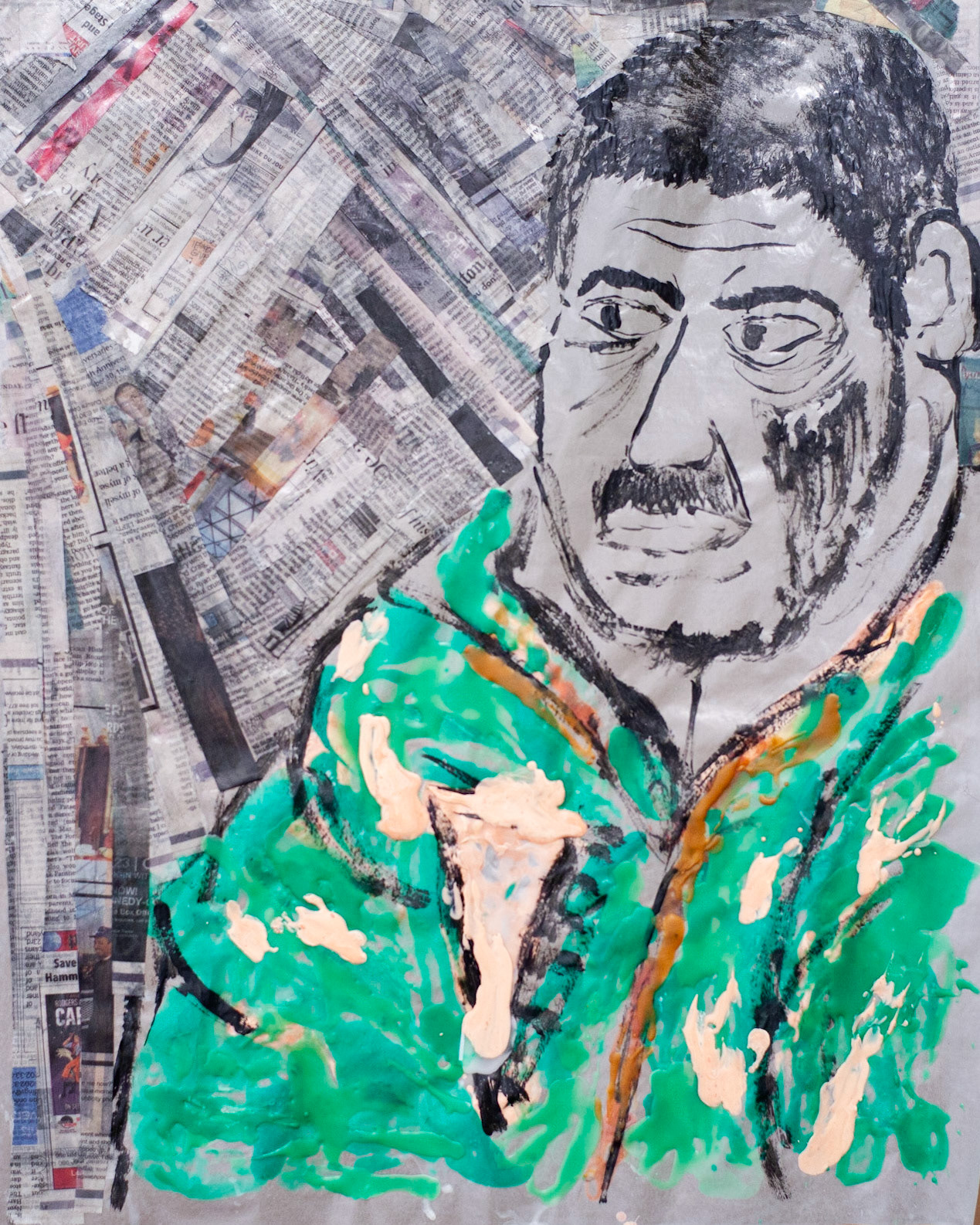
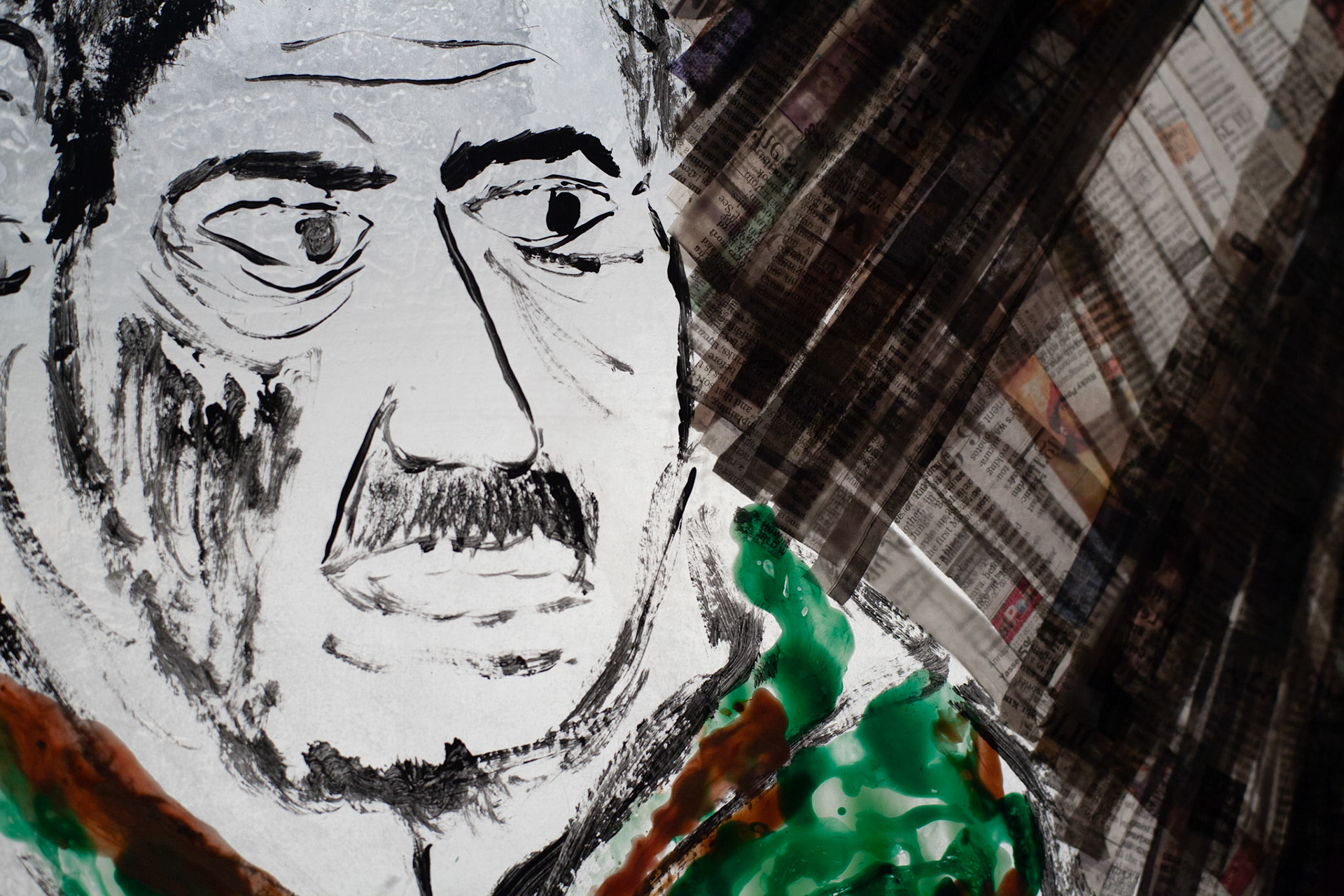
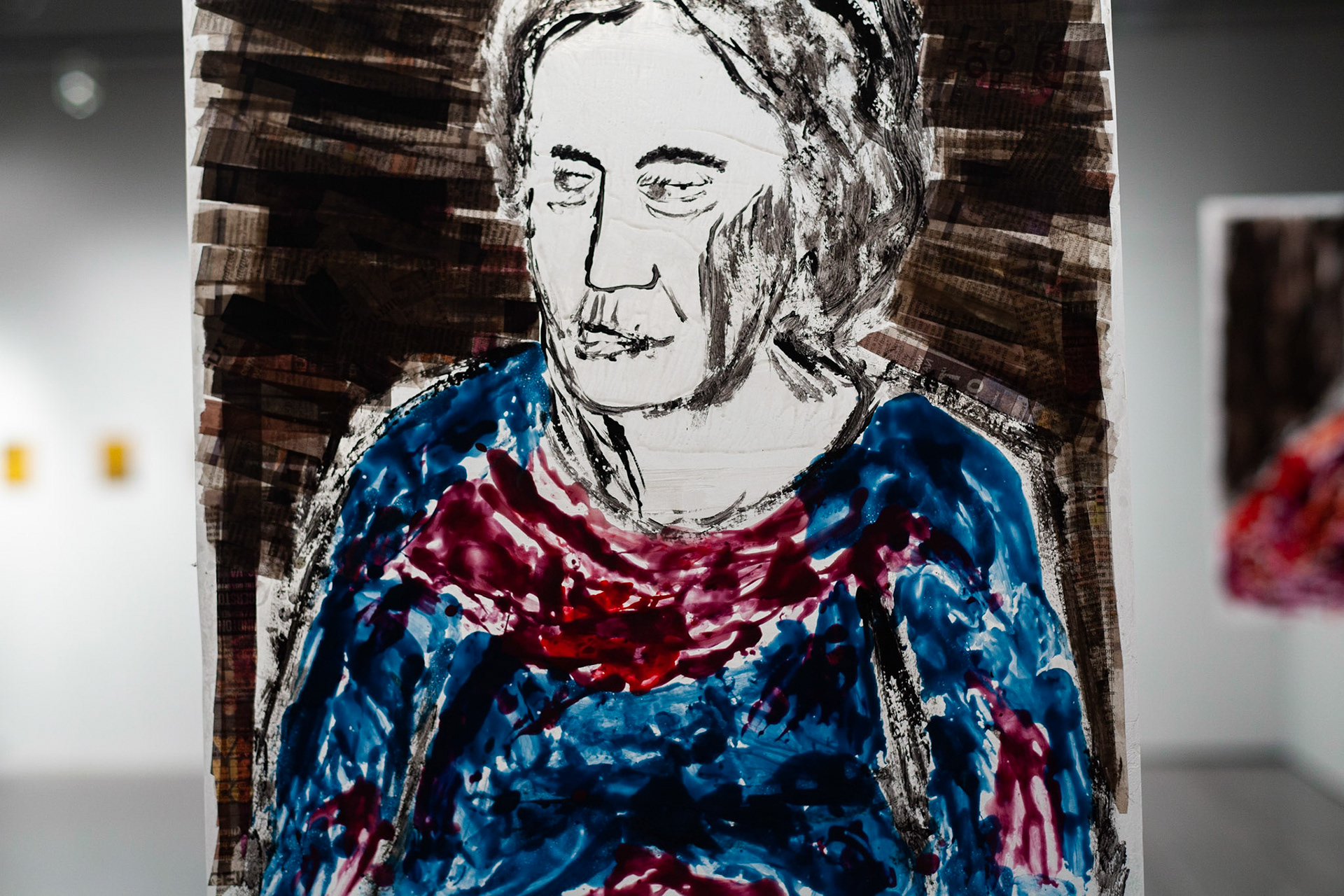
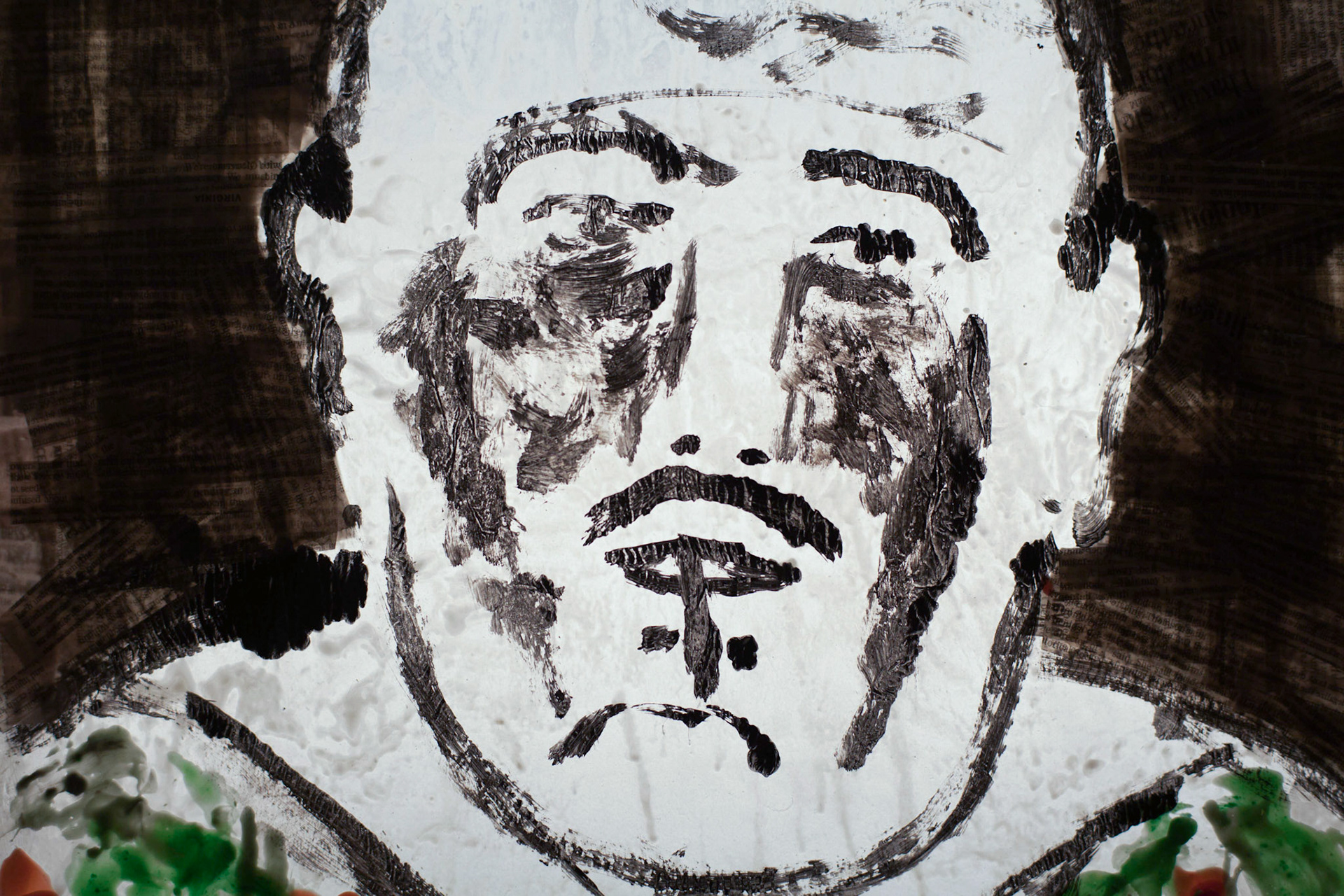
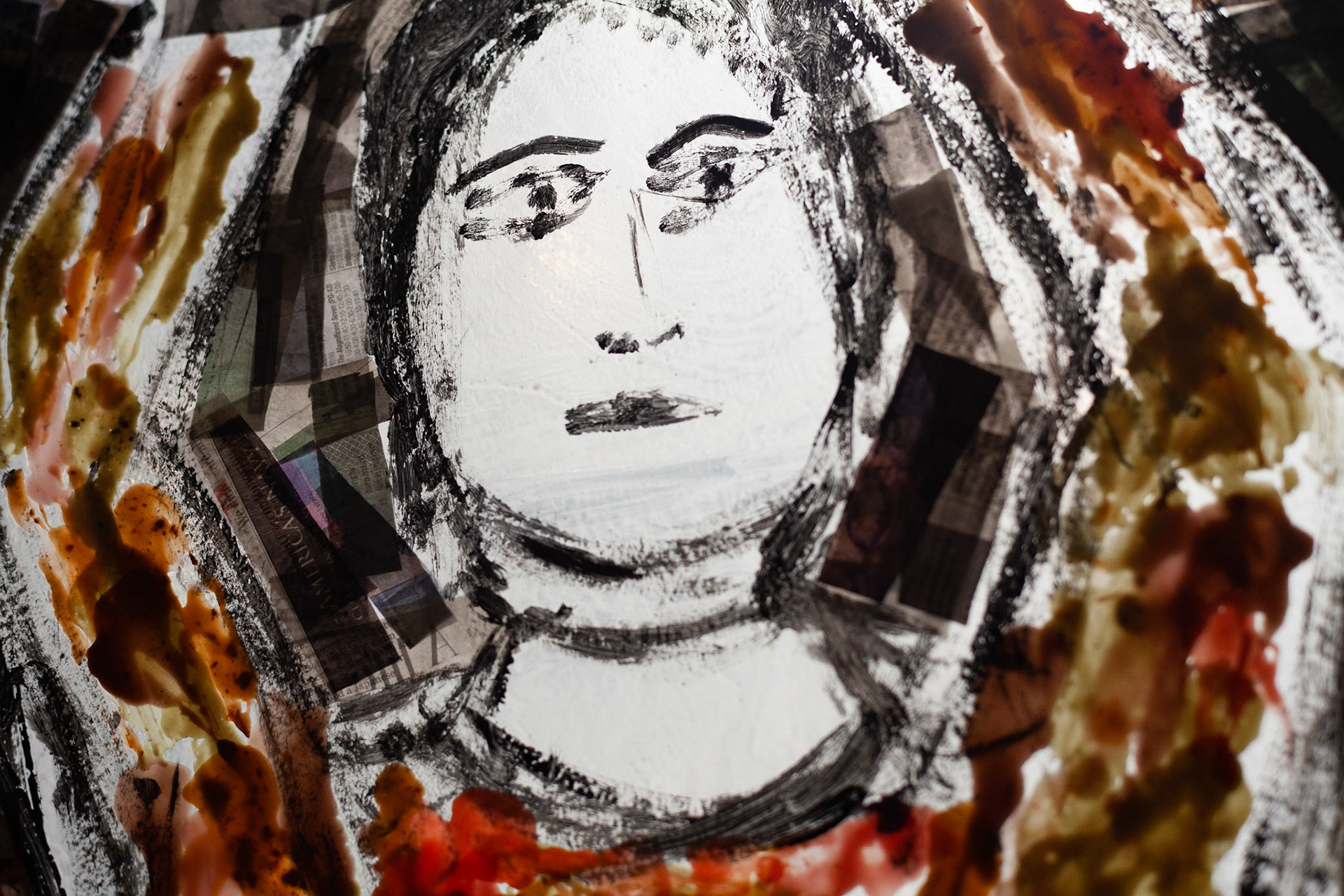
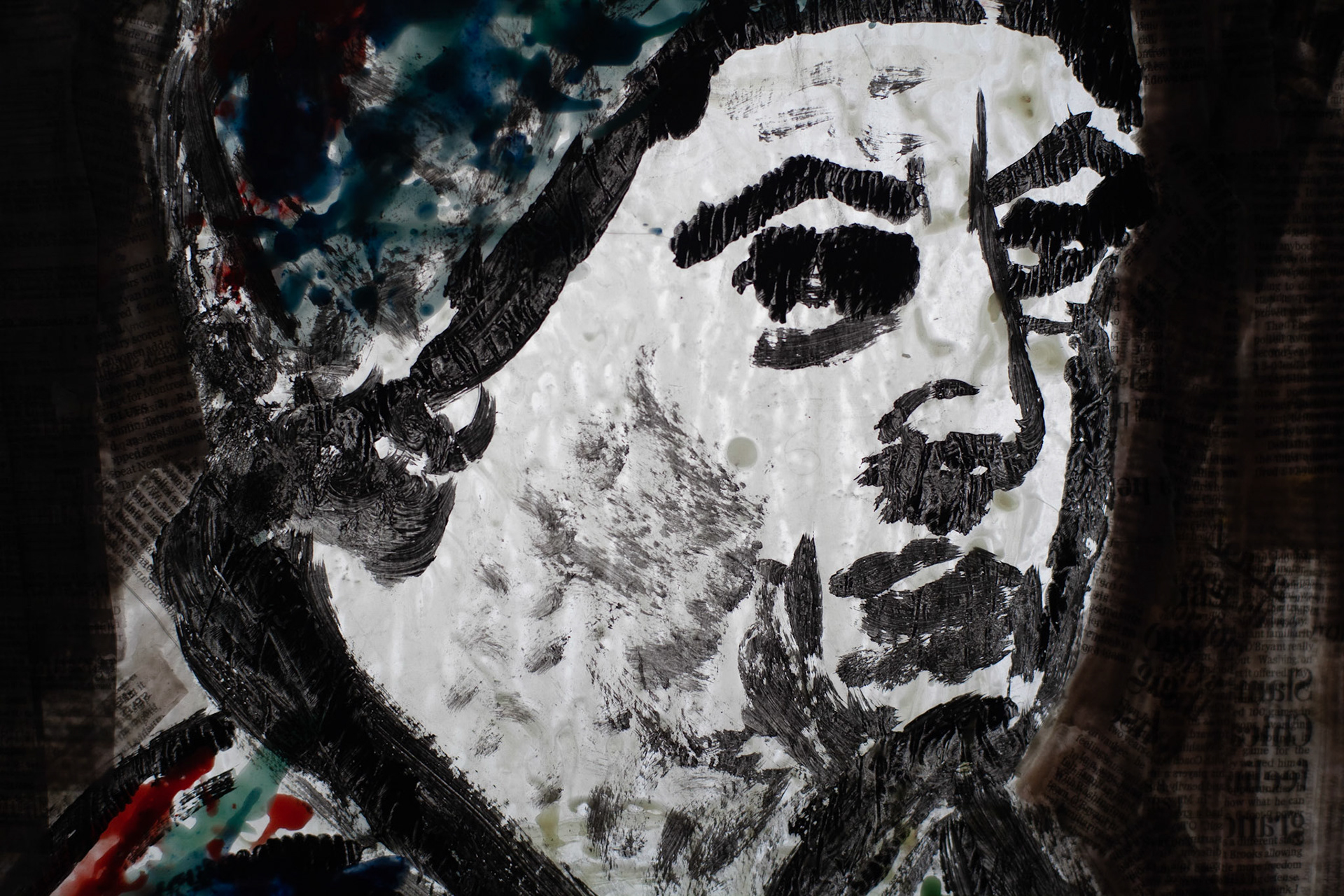
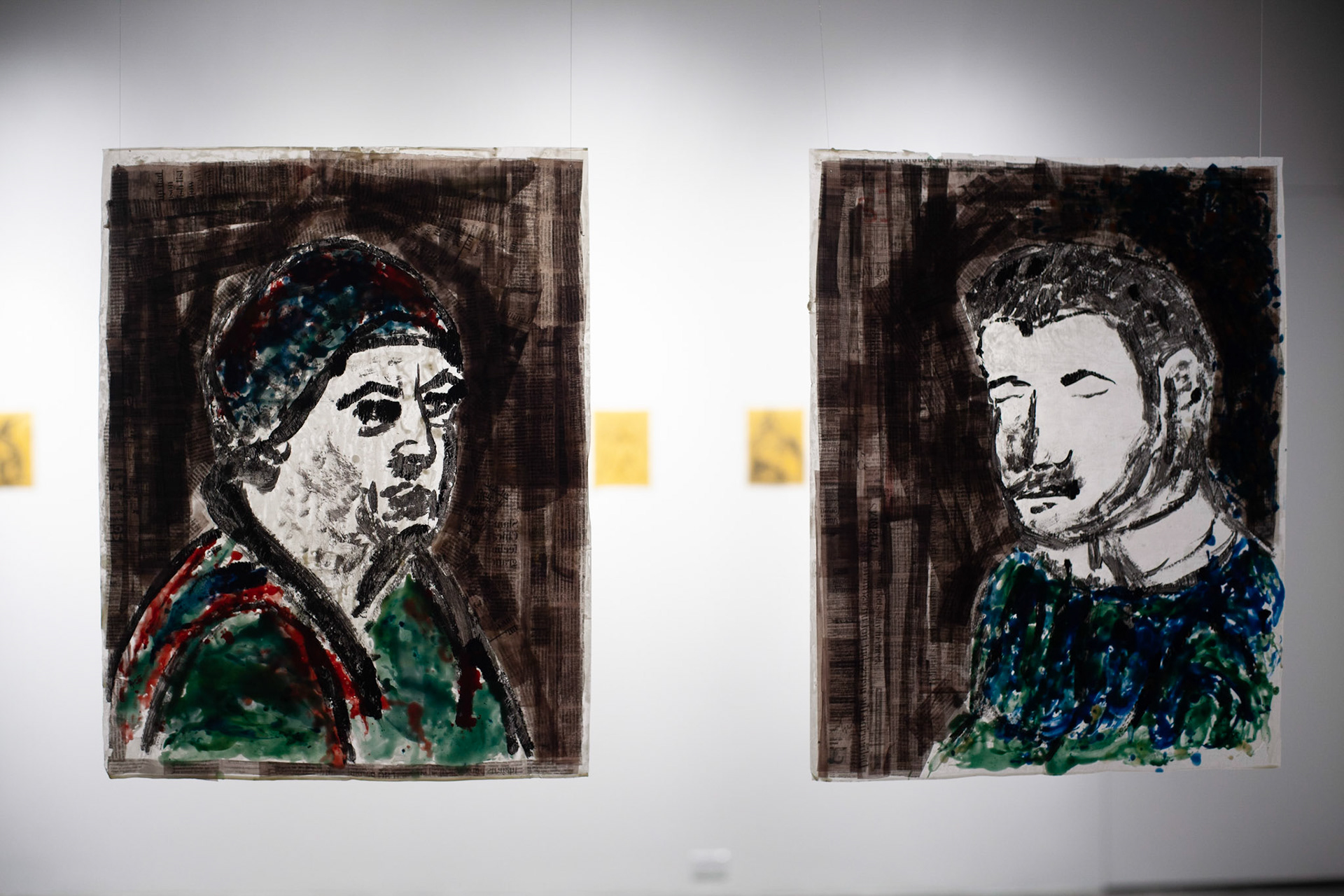
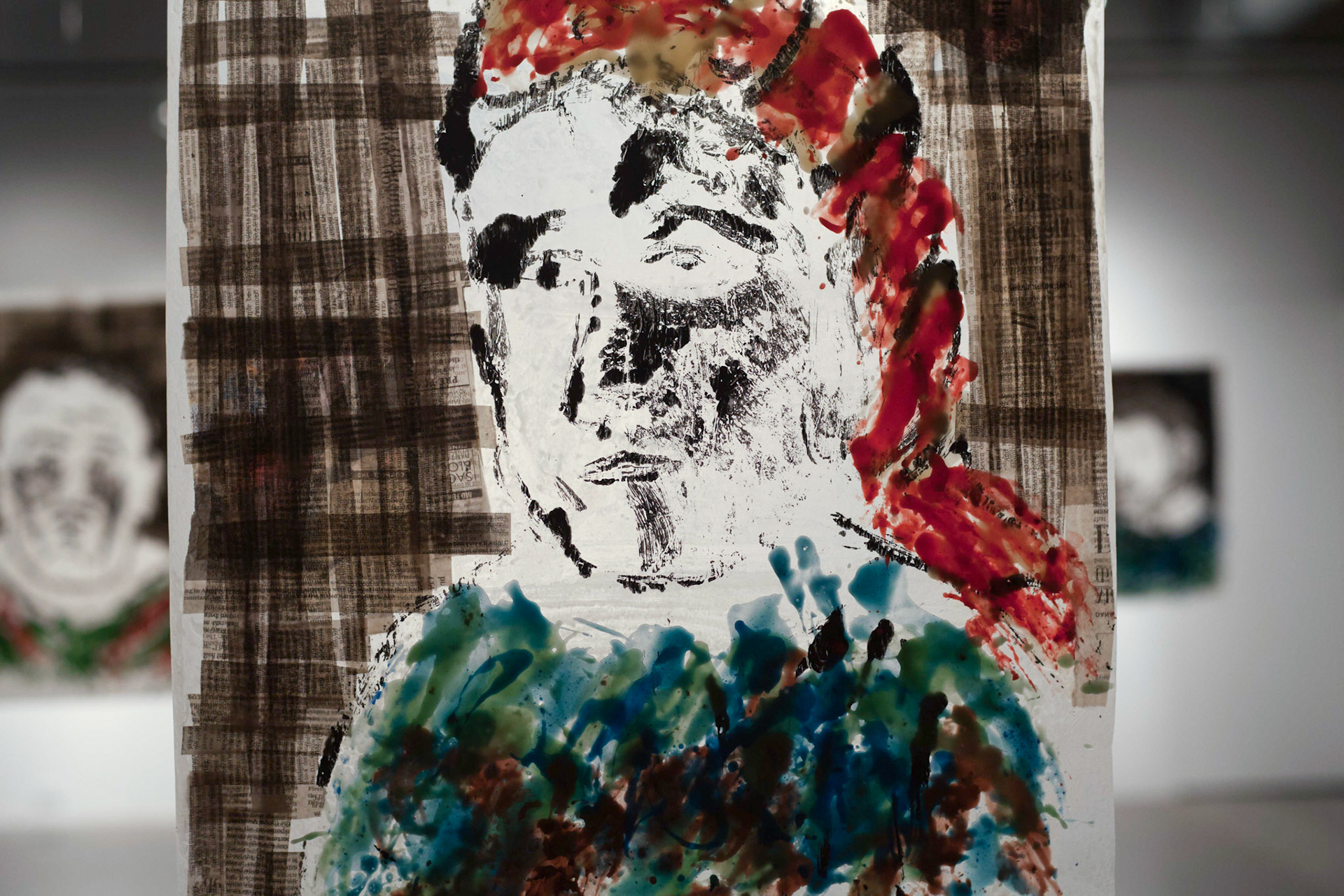
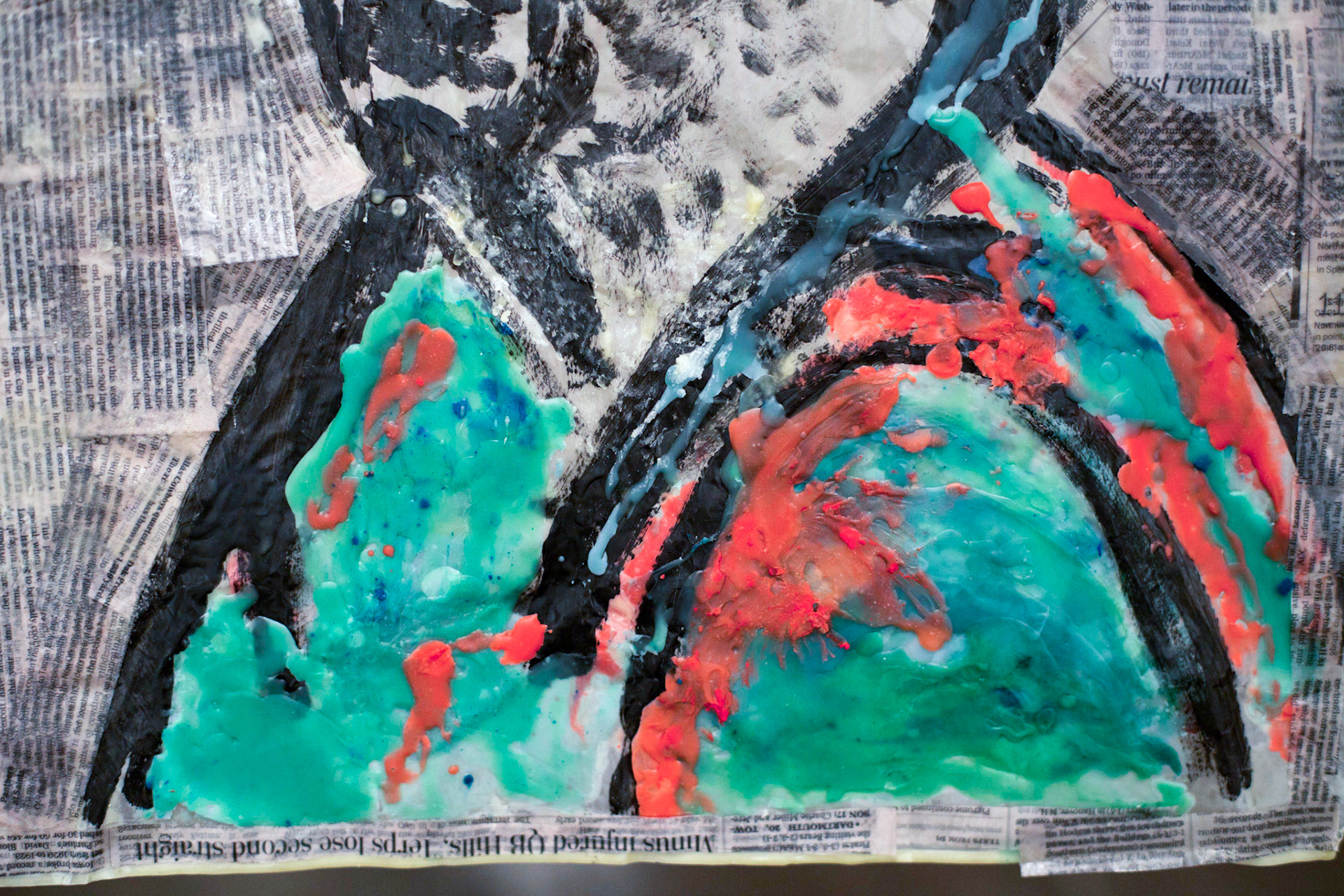
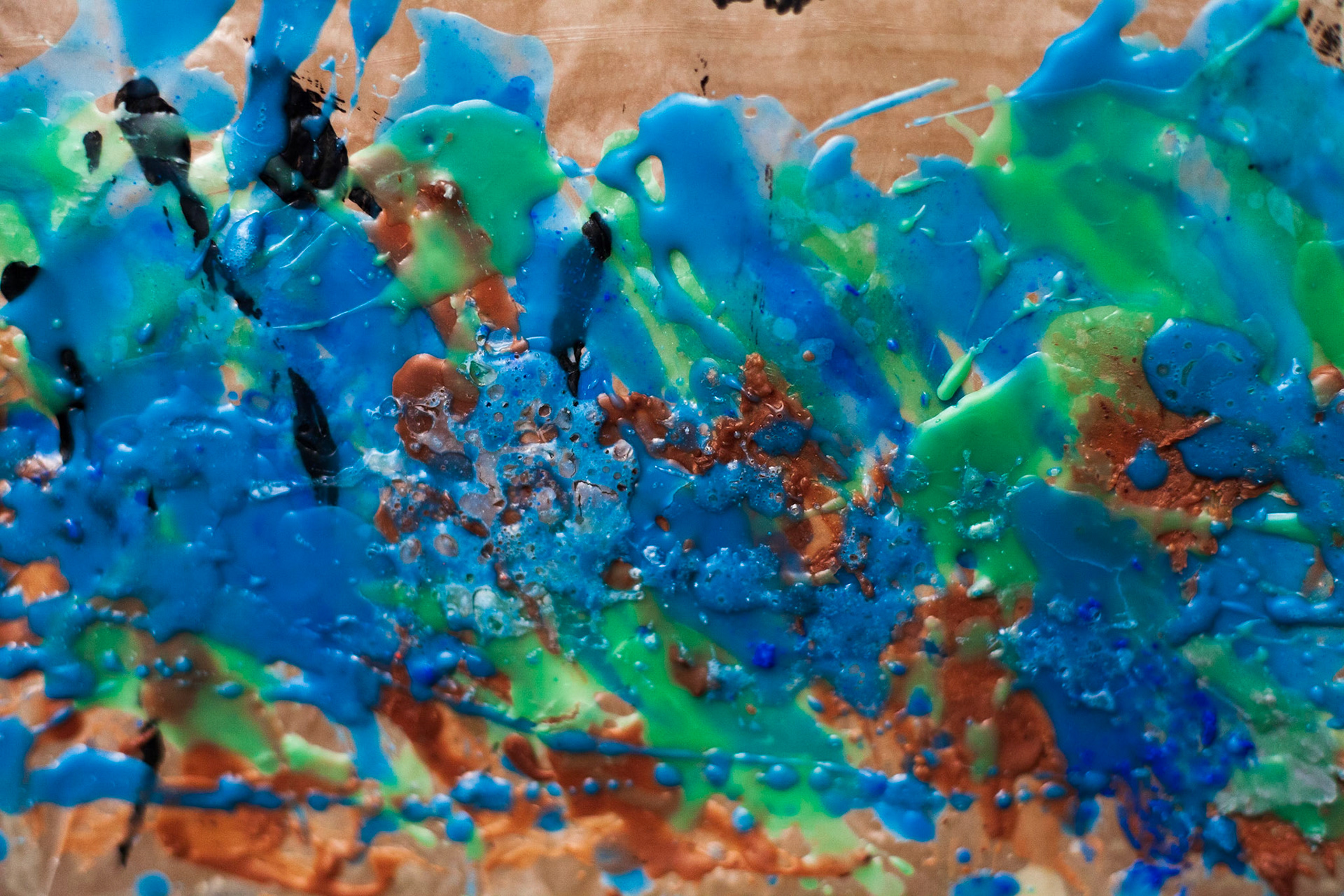
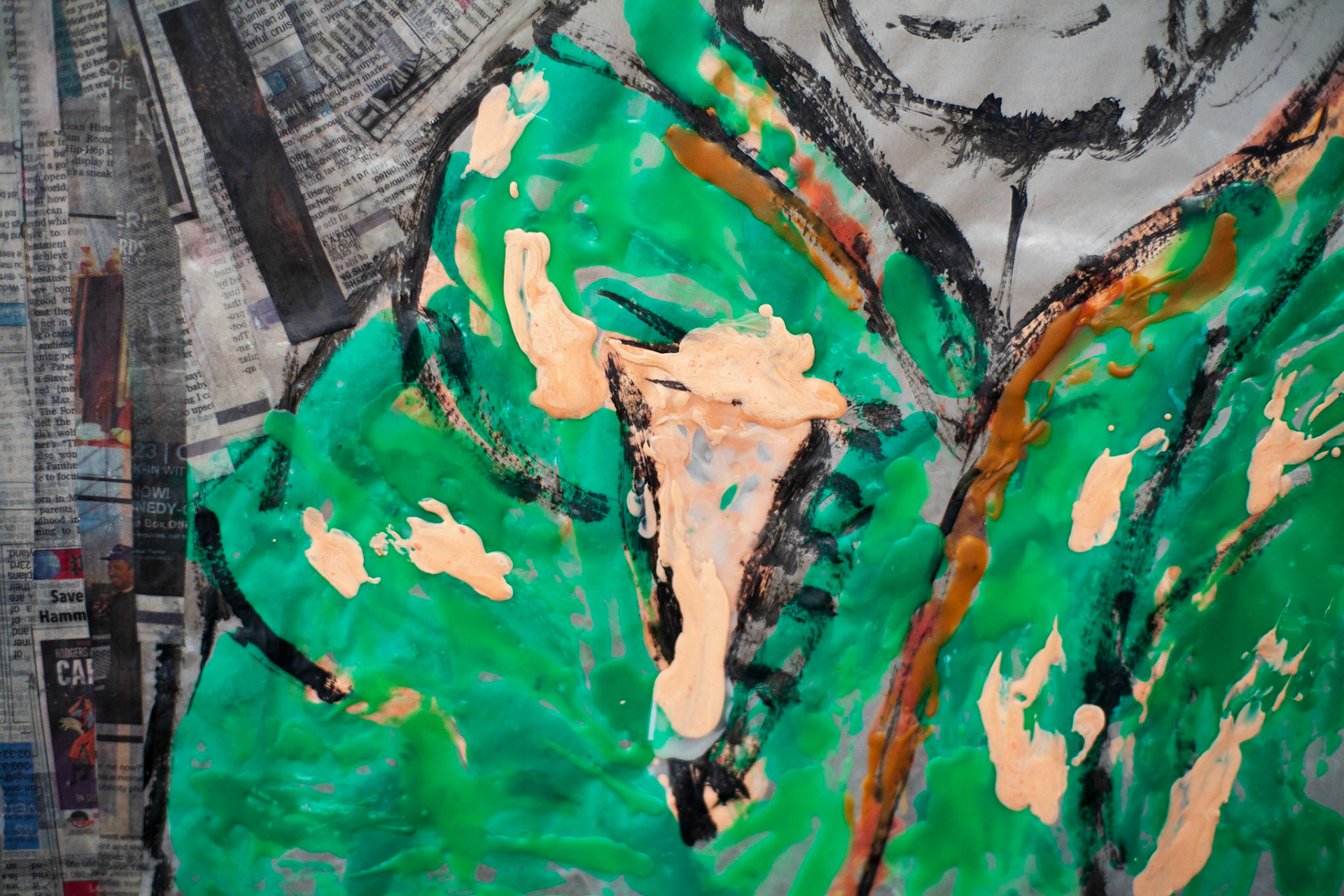
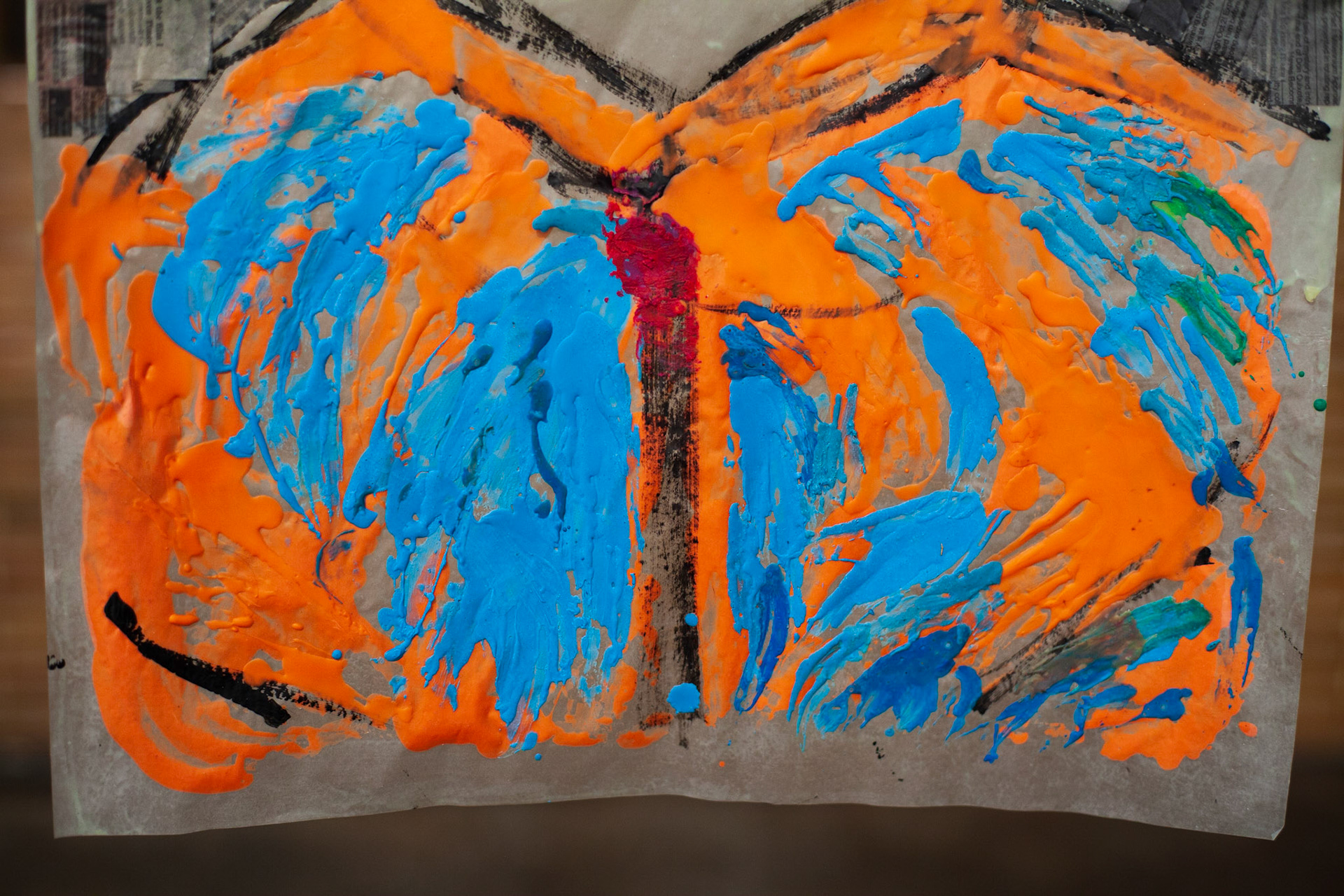
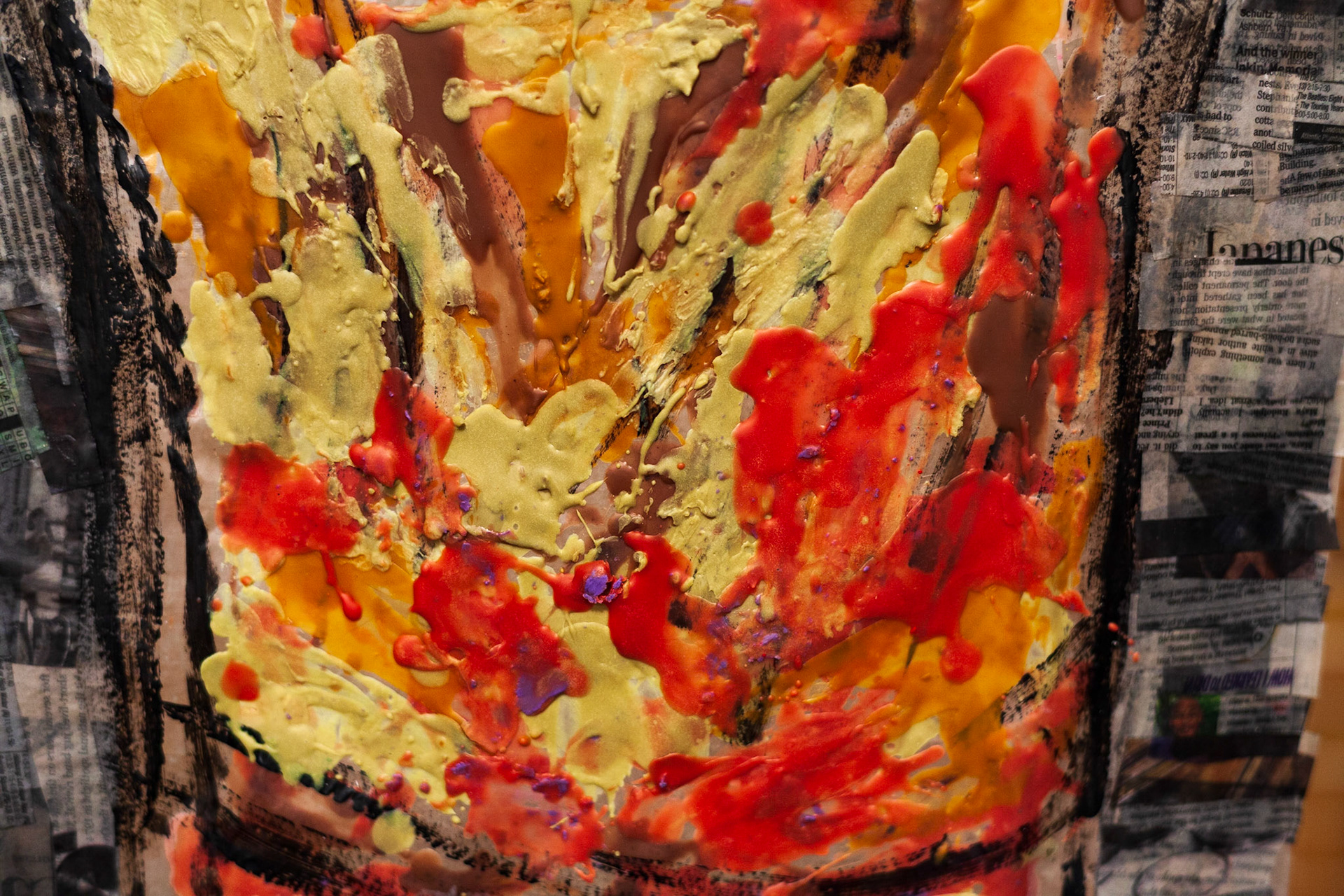
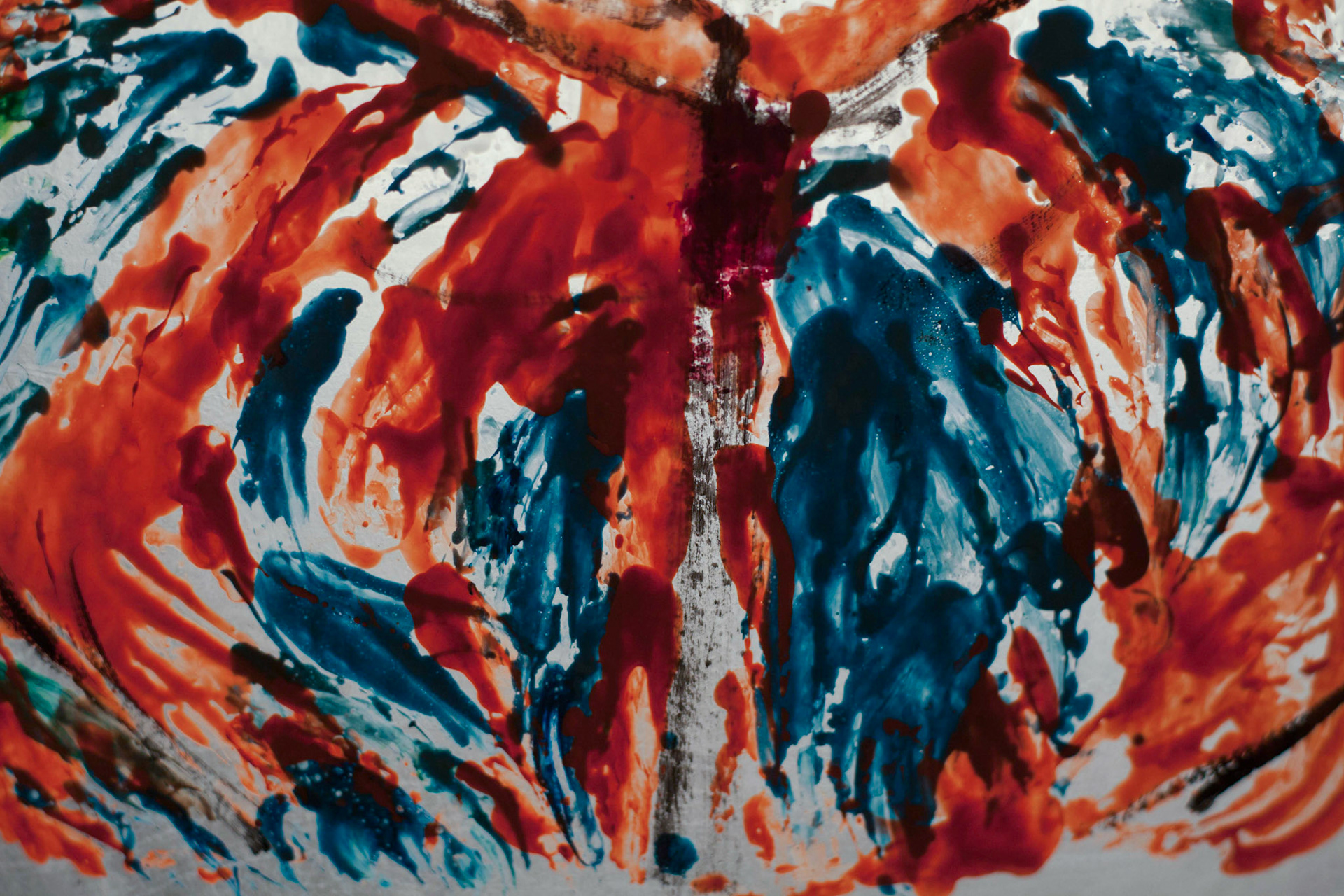
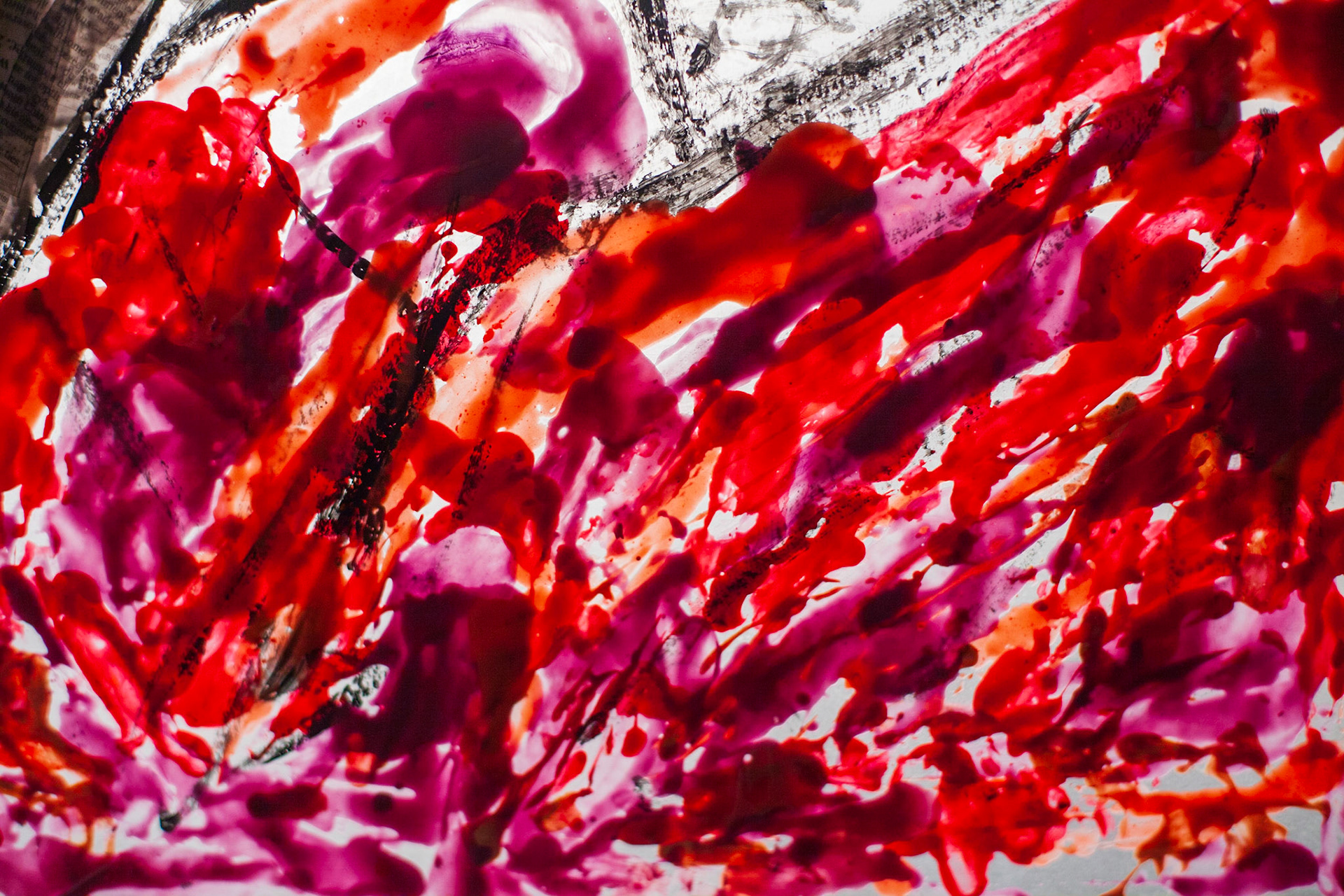
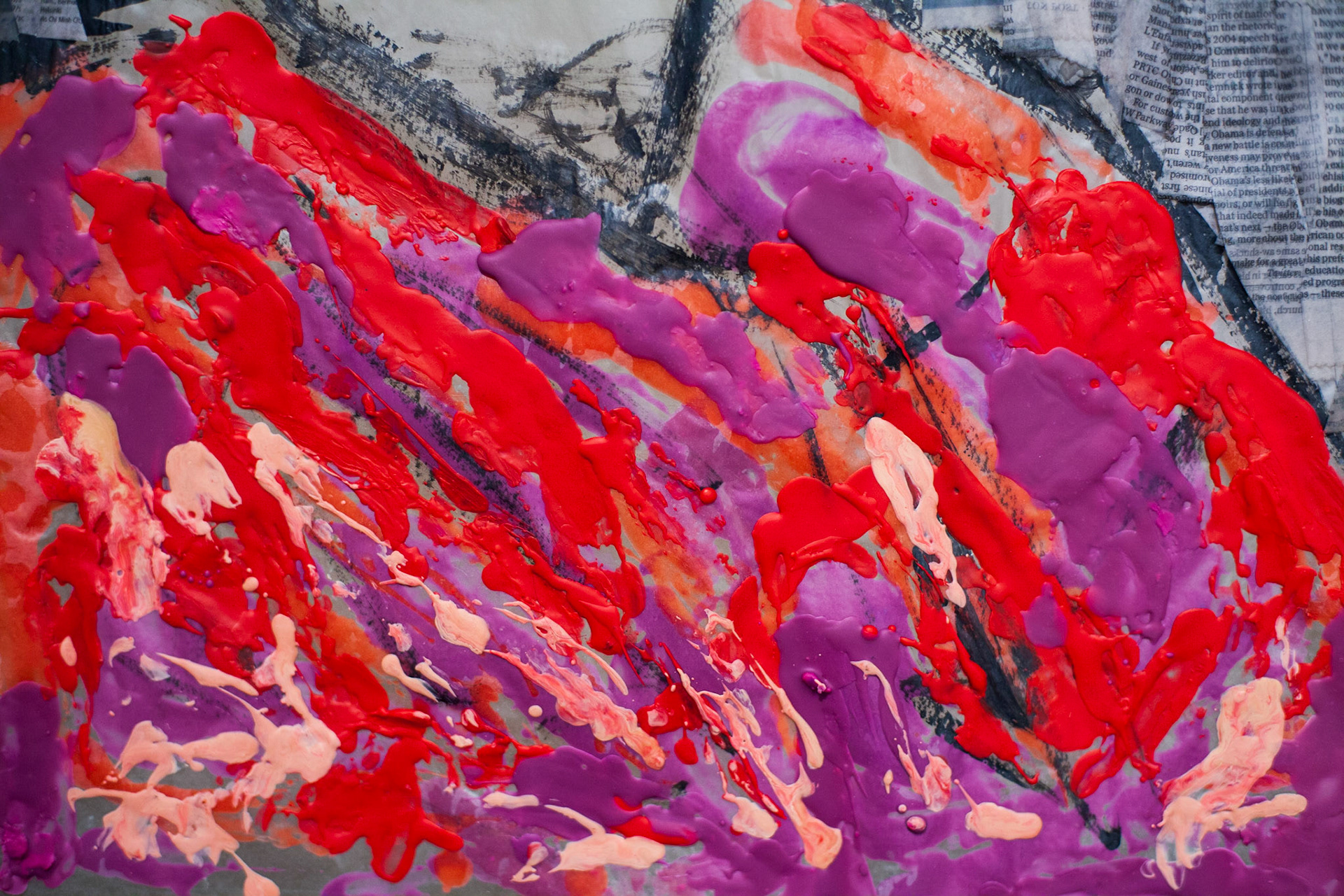
MEMORIES OF THE CAMP
Wax, ink and onion skin paper.
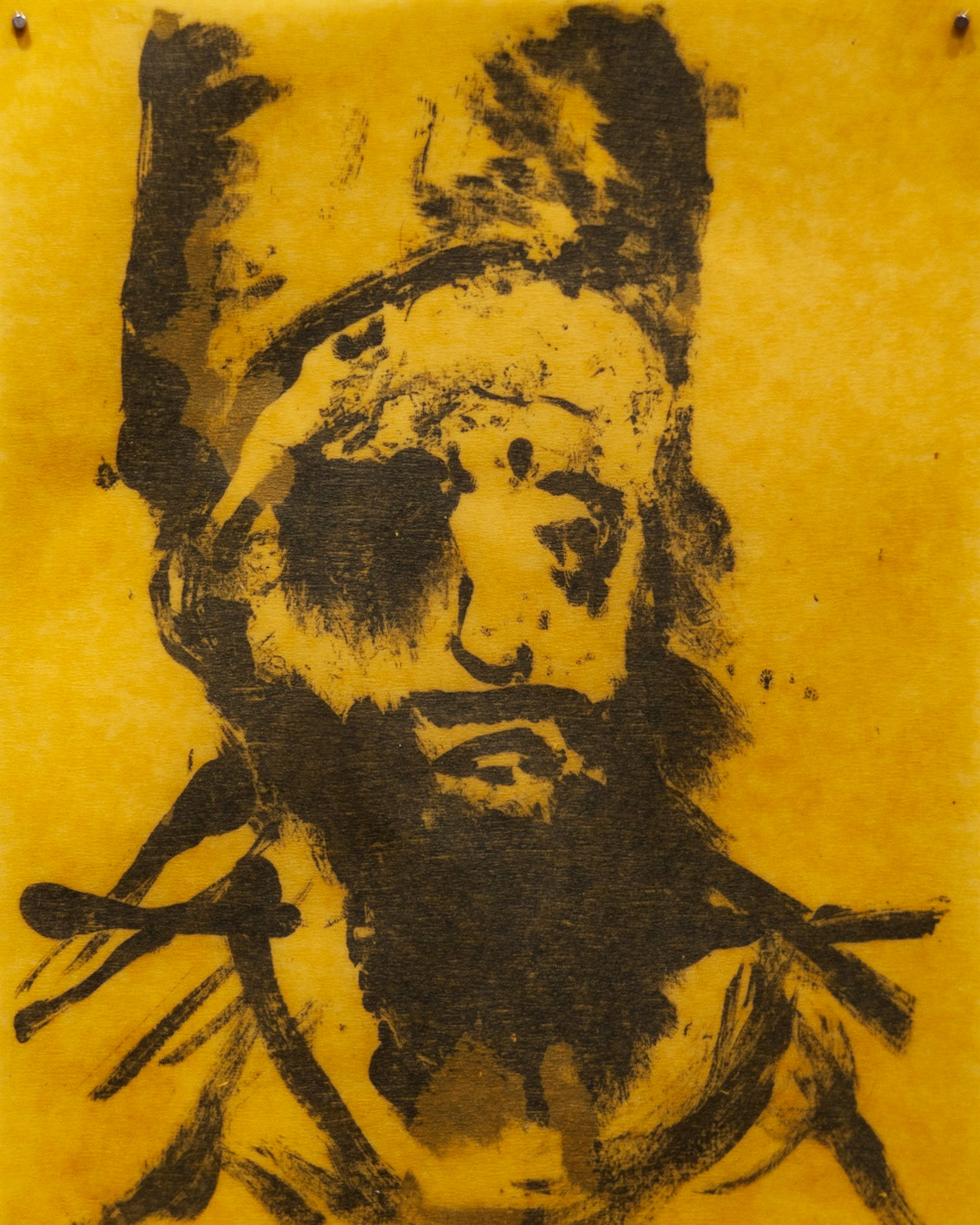
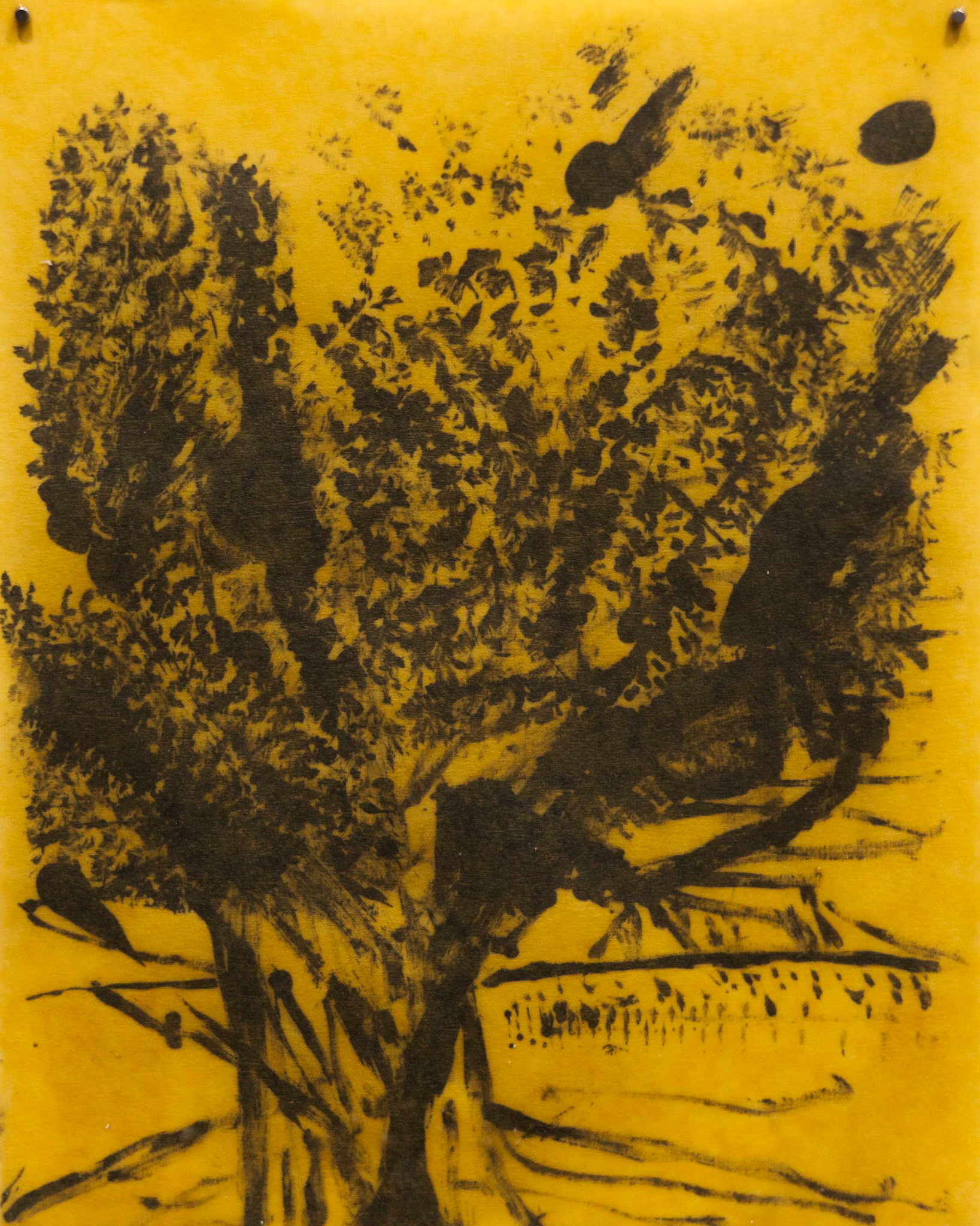
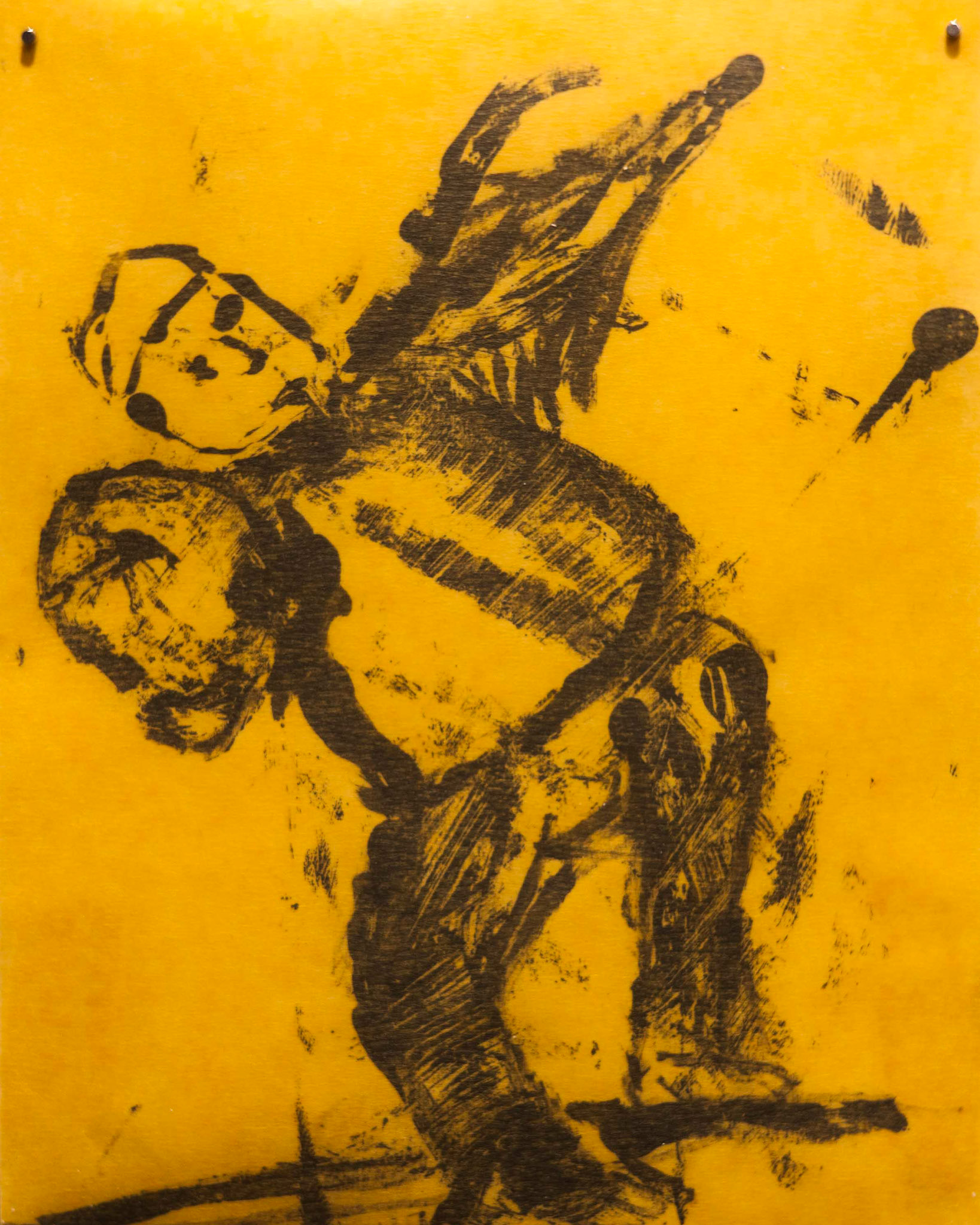
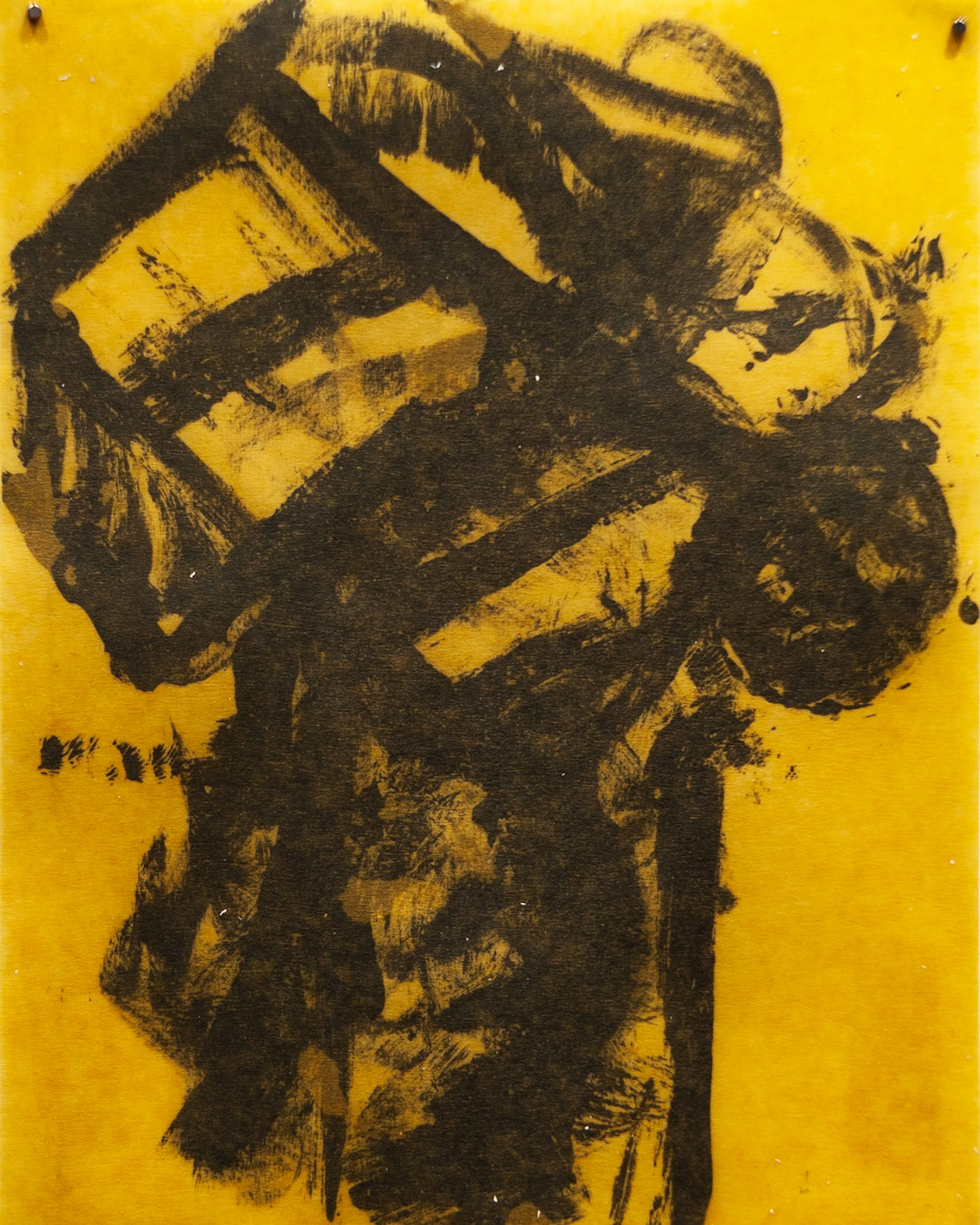
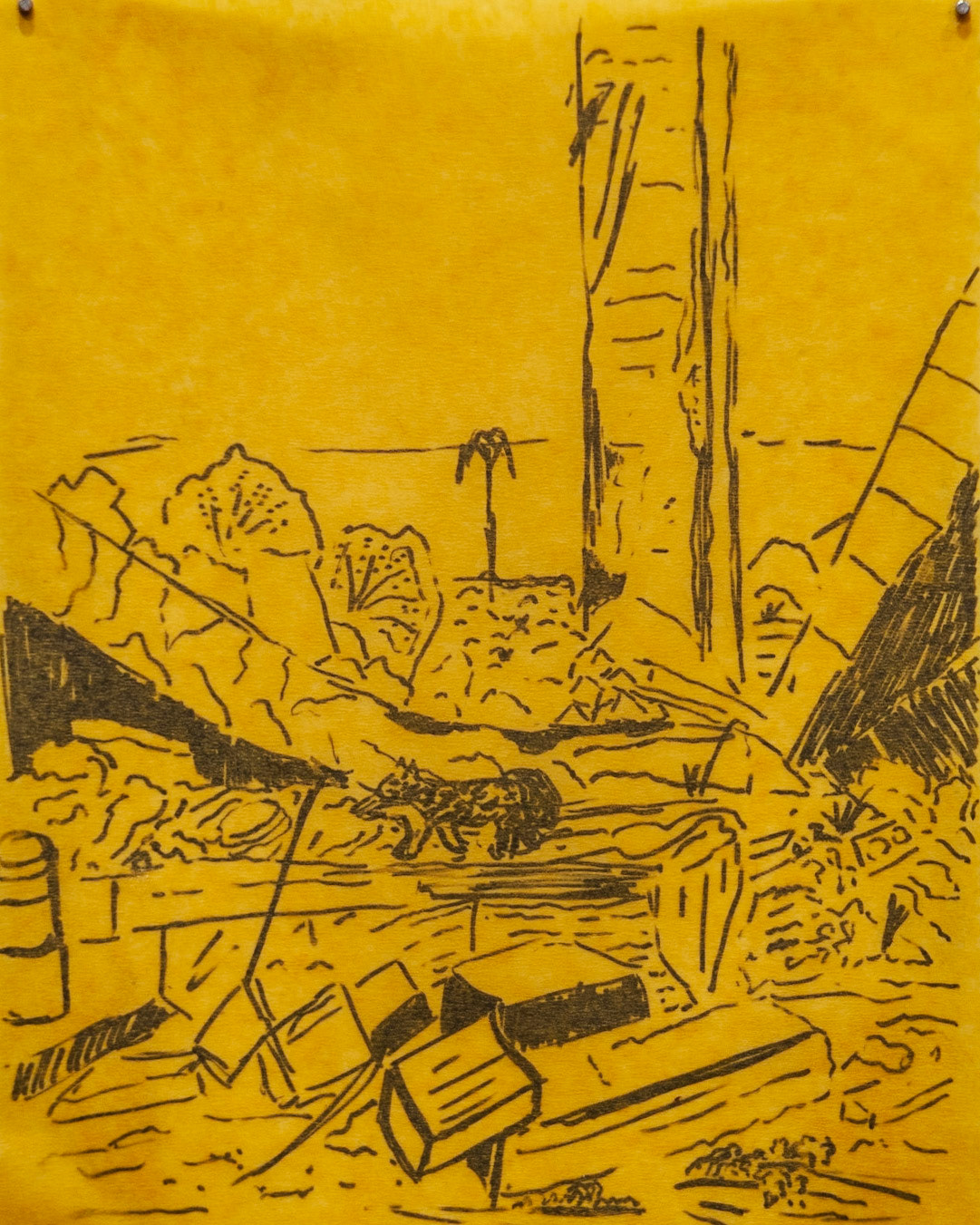
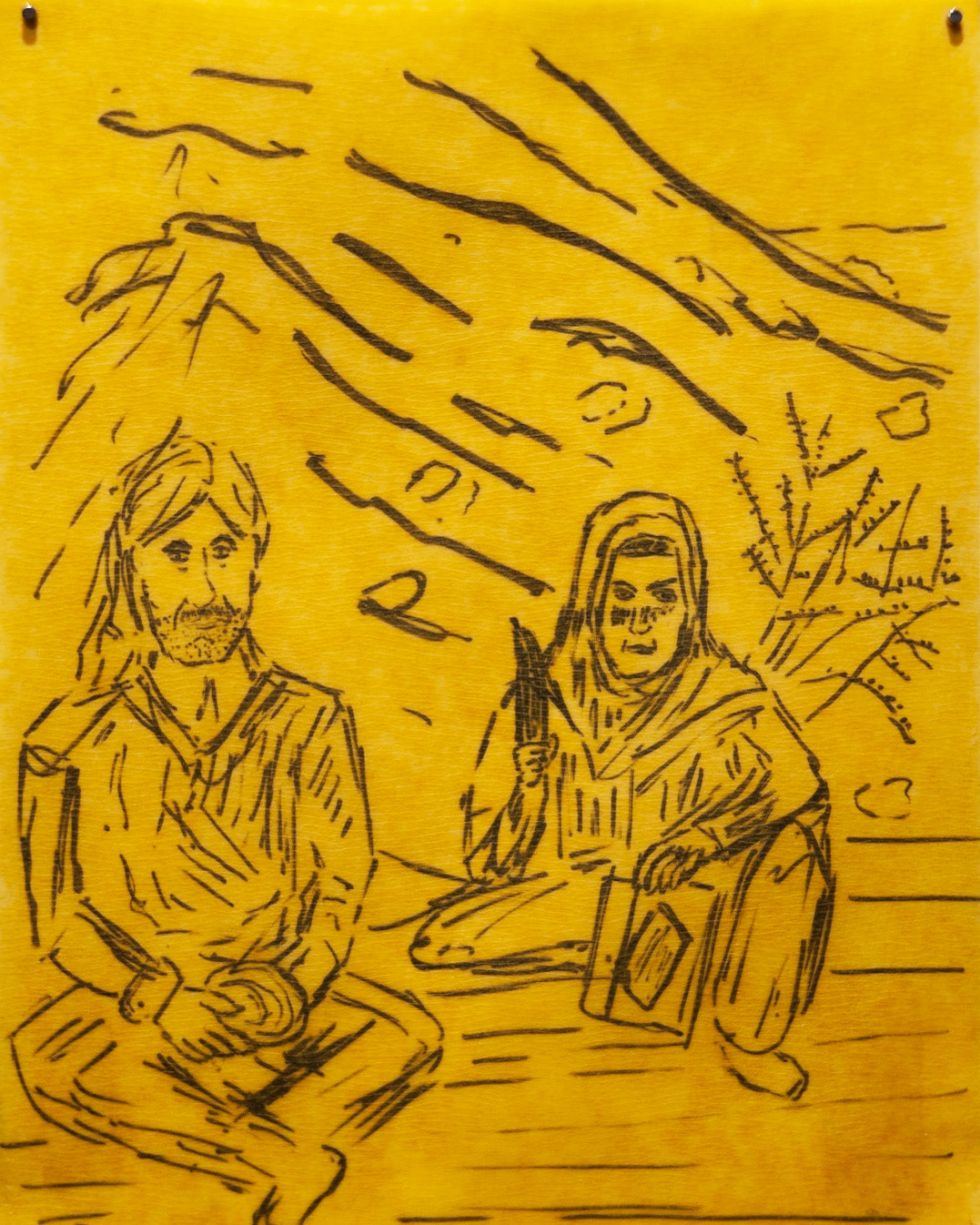
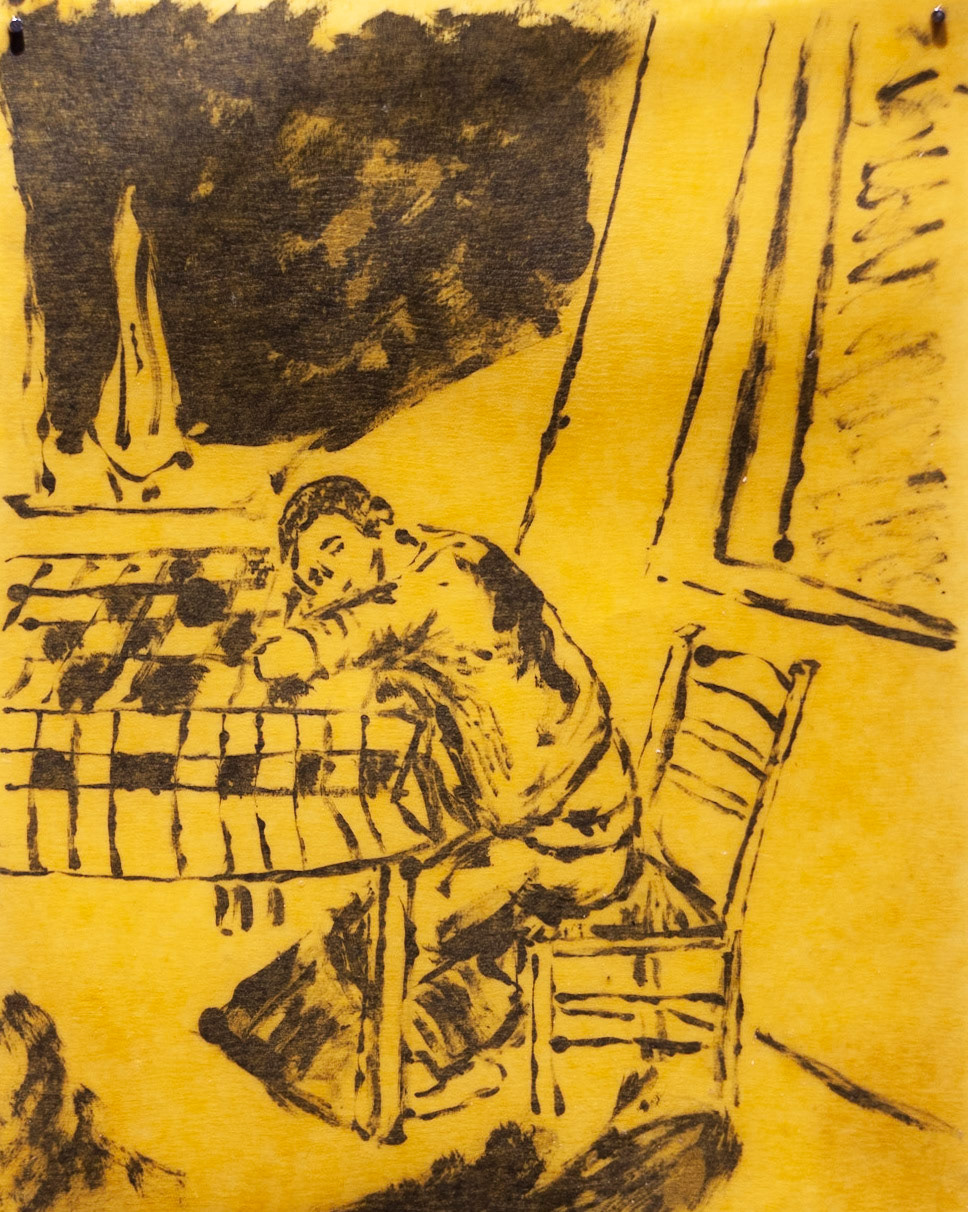
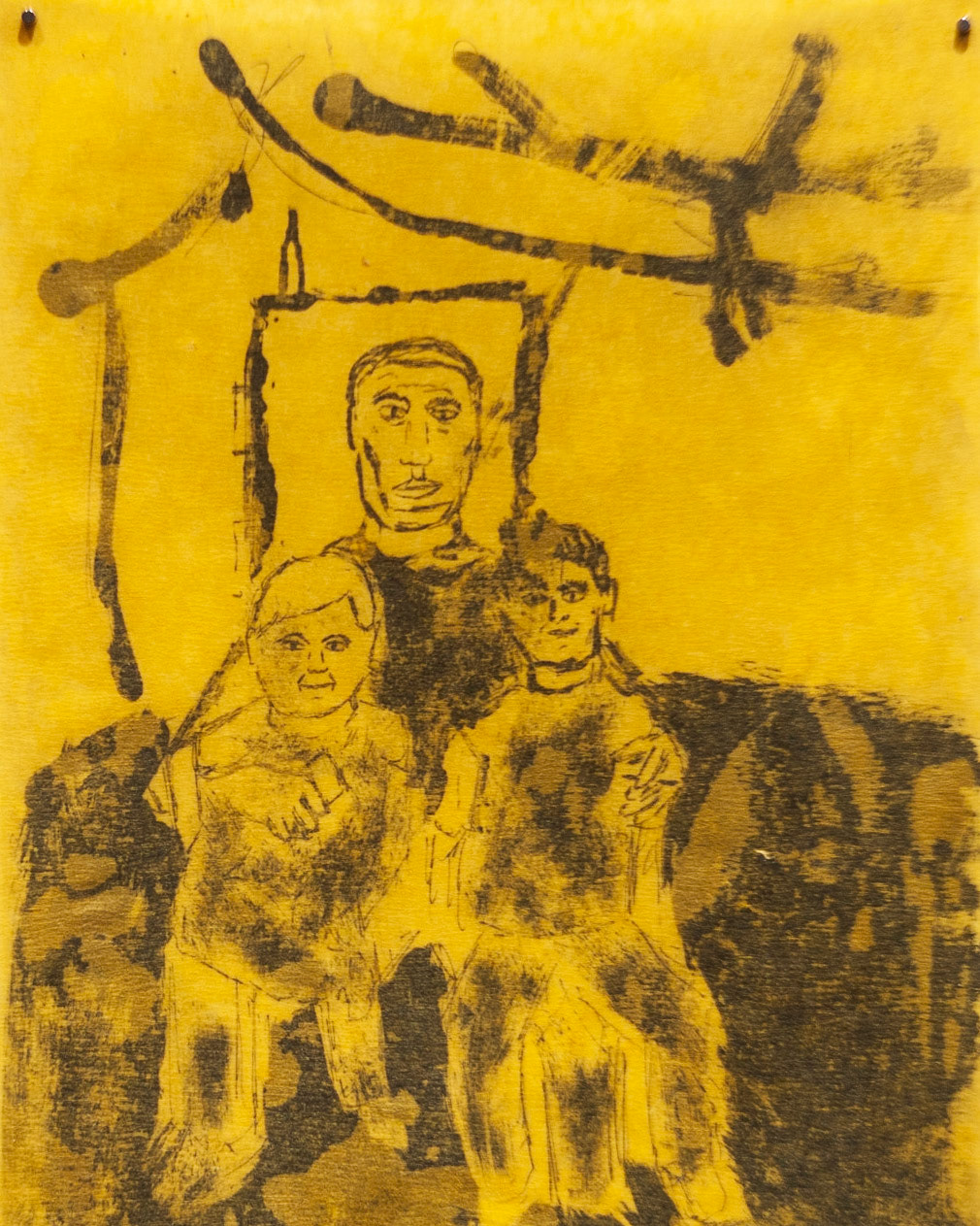
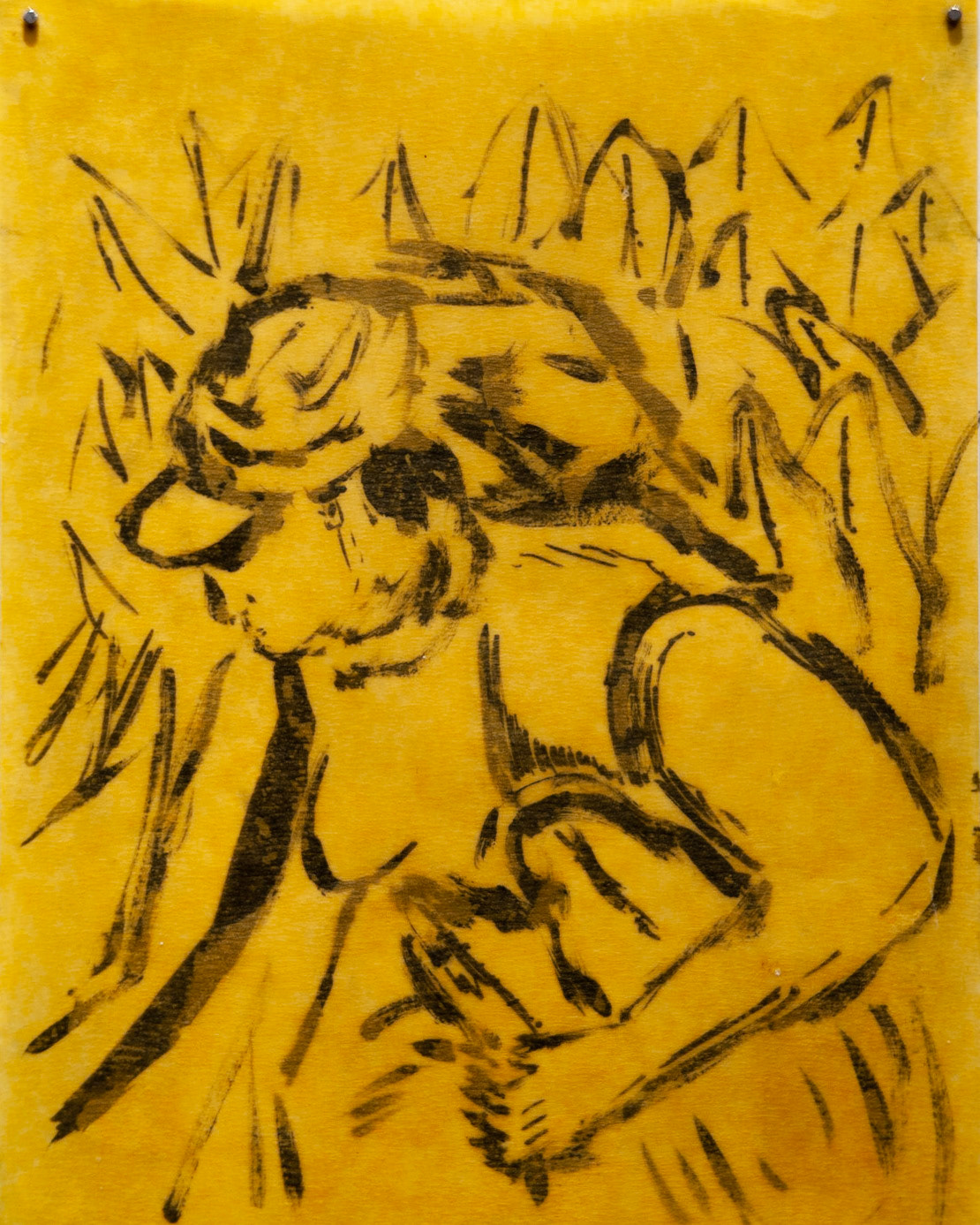
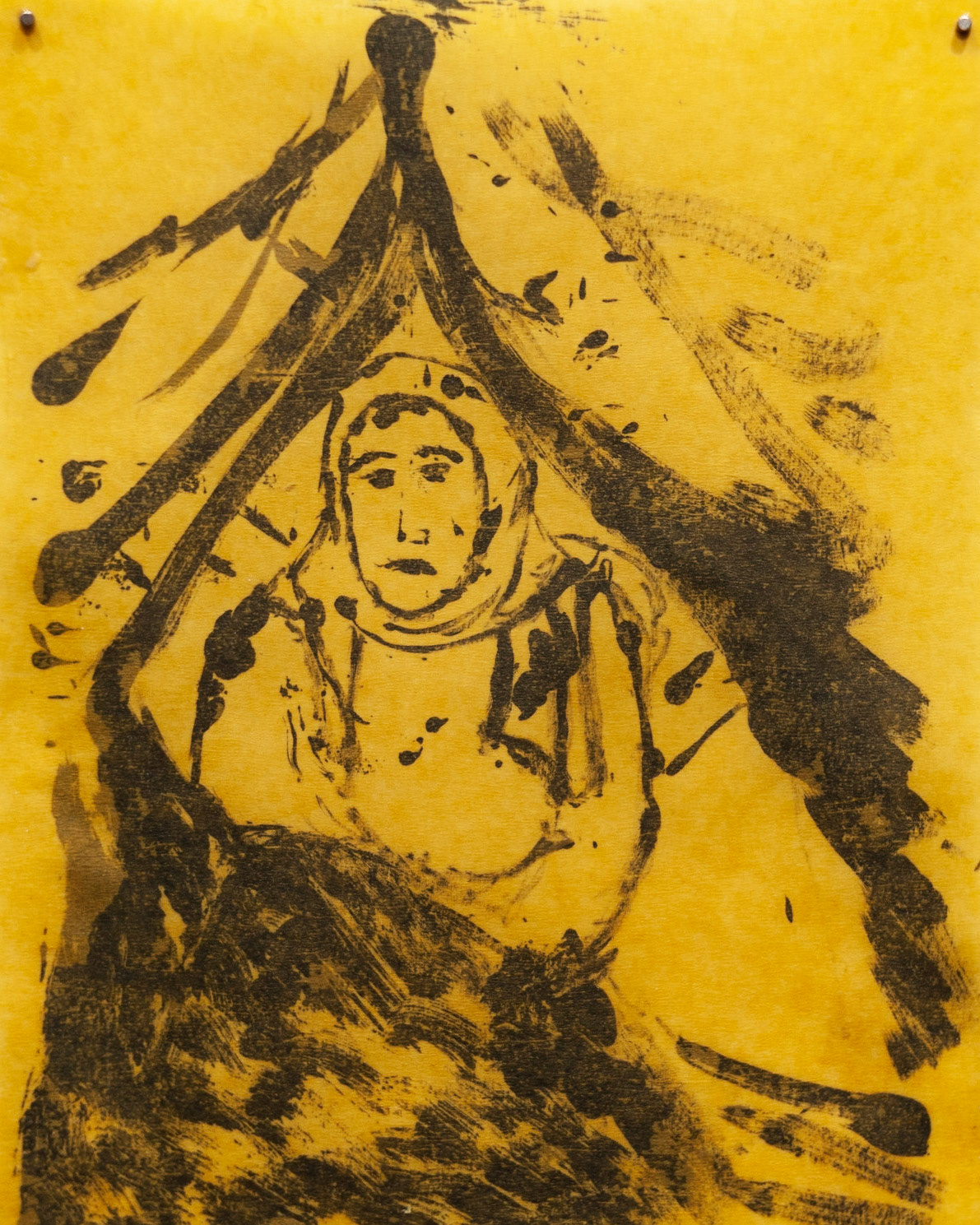

YEK HEBÛ Û YEK TUNEBÛ/ ONCE THERE WAS AND ONCE THERE WASN'T
Video, charcoal and pastel animation (3min).
This series of animated drawing explores Kurdish stories through the concept of transformation. In the majority of ancient legends, elements or character of the narration get transformed into something different. For instance, in one of the stories, two sisters fighting with each other are transformed into mountains (big Ararat and little Ararat) by god. This storytelling technique shows the connection that Kurdish ancestors had with nature and their land. At the same time, this concept of transformation is essential to the life of refugees in which everything is constantly changing. The nightmare of the past and the uncertainty of the present is express through the movement of charcoal lines in which the erased line will never leave completely that paper but will always leave a trace. The texture of the drawing expresses the paradoxical temporal dimensions of the life of refugees in which everything is constantly changing but nothing is moving forward.
KURDISH NEW YEAR (Newroz)
Oil pastels, ink and wax on canvas paper.
The New Year is the most important Kurdish holiday. It celebrates victory over oppression. This festivity comes from the story of the evil king Dahak. He only cared about his own being and terrorized his people. It happened that one day, two sakes came out of his shoulders. He went to see many Wiseman to cure this painful aberration. One of them suggested him to solve the problem by feeding the snakes with the brain of young boys and girls. The evil king followed the Wiseman's advice but nothing happened and out of disappointment he decided to keep executing young people The villagers asked Kawa, the blacksmith to solve his problem. Kawa devised a plan and killed the king, making a big fire to tell the villagers that they free from evil. Kurdish refugees told me that under Bashar-al-Assad they were not allowed to celebrate this festival of liberation.
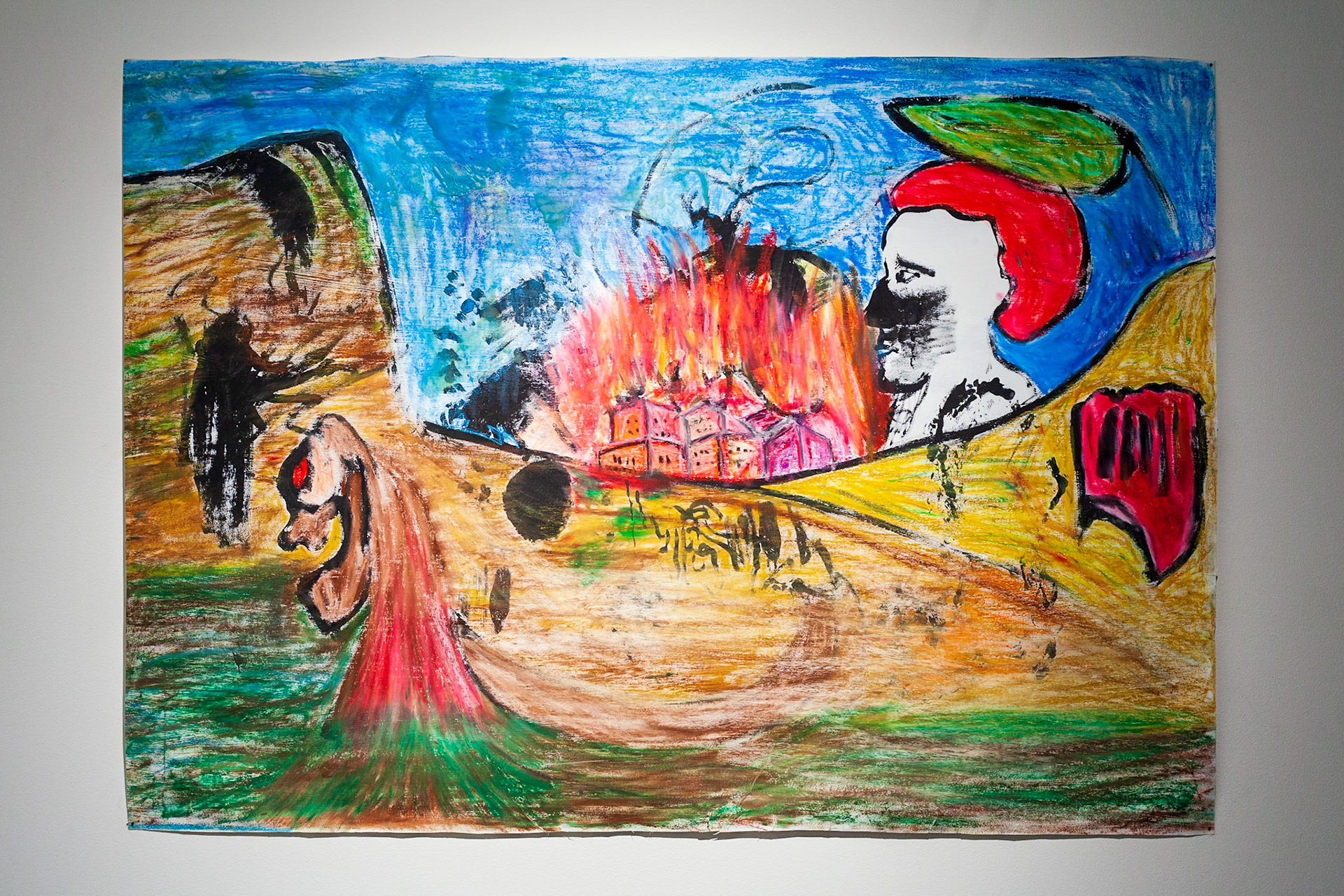
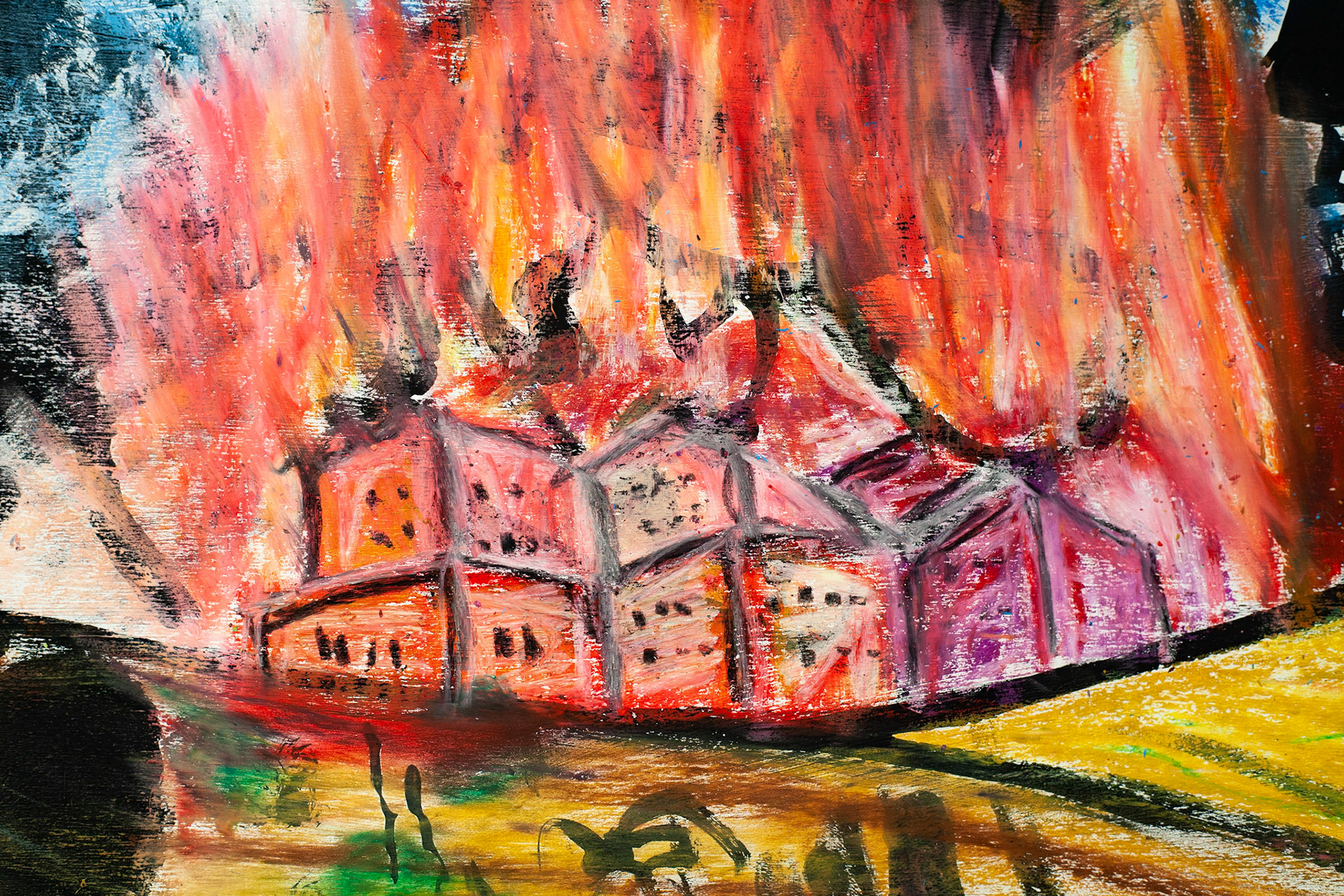
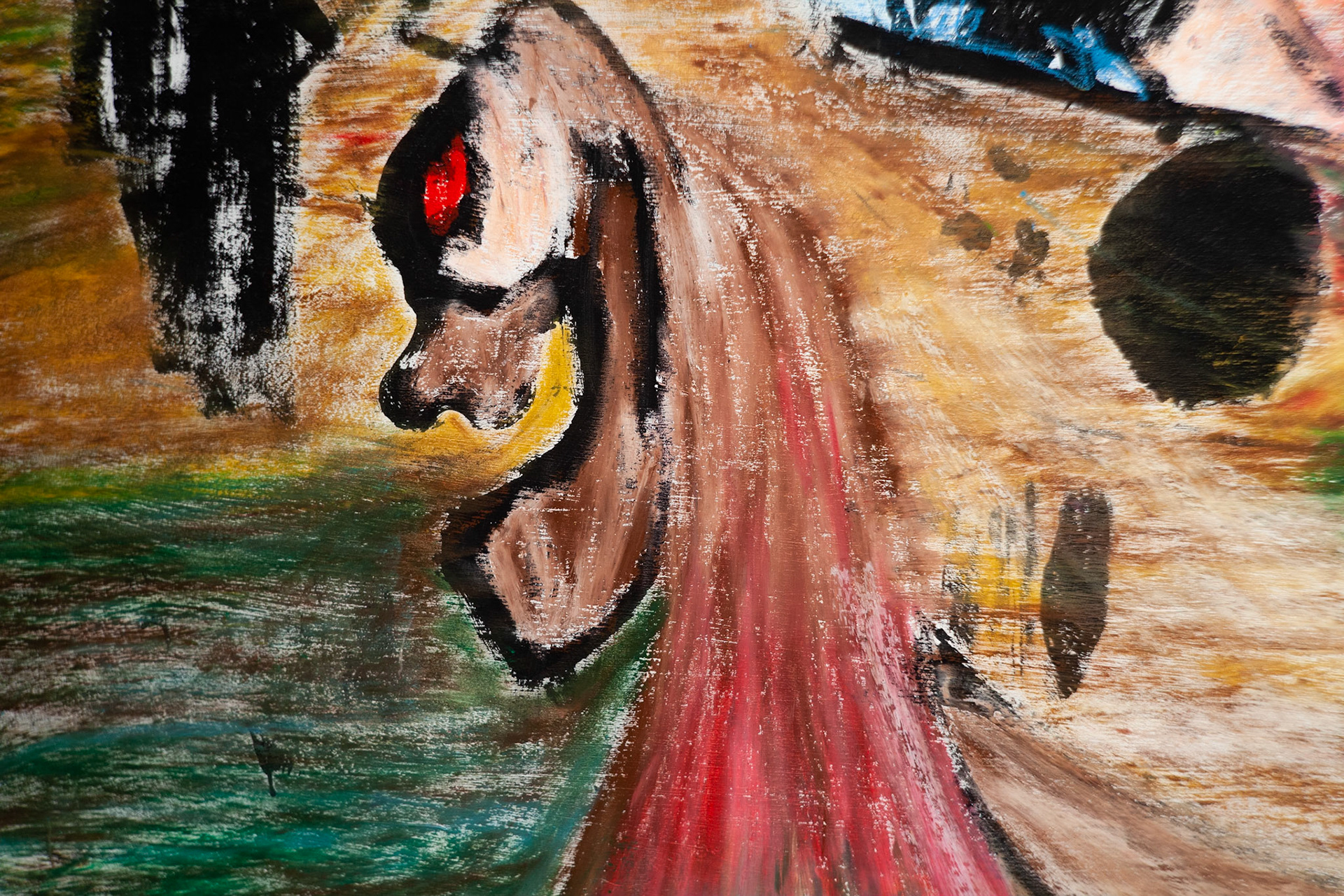
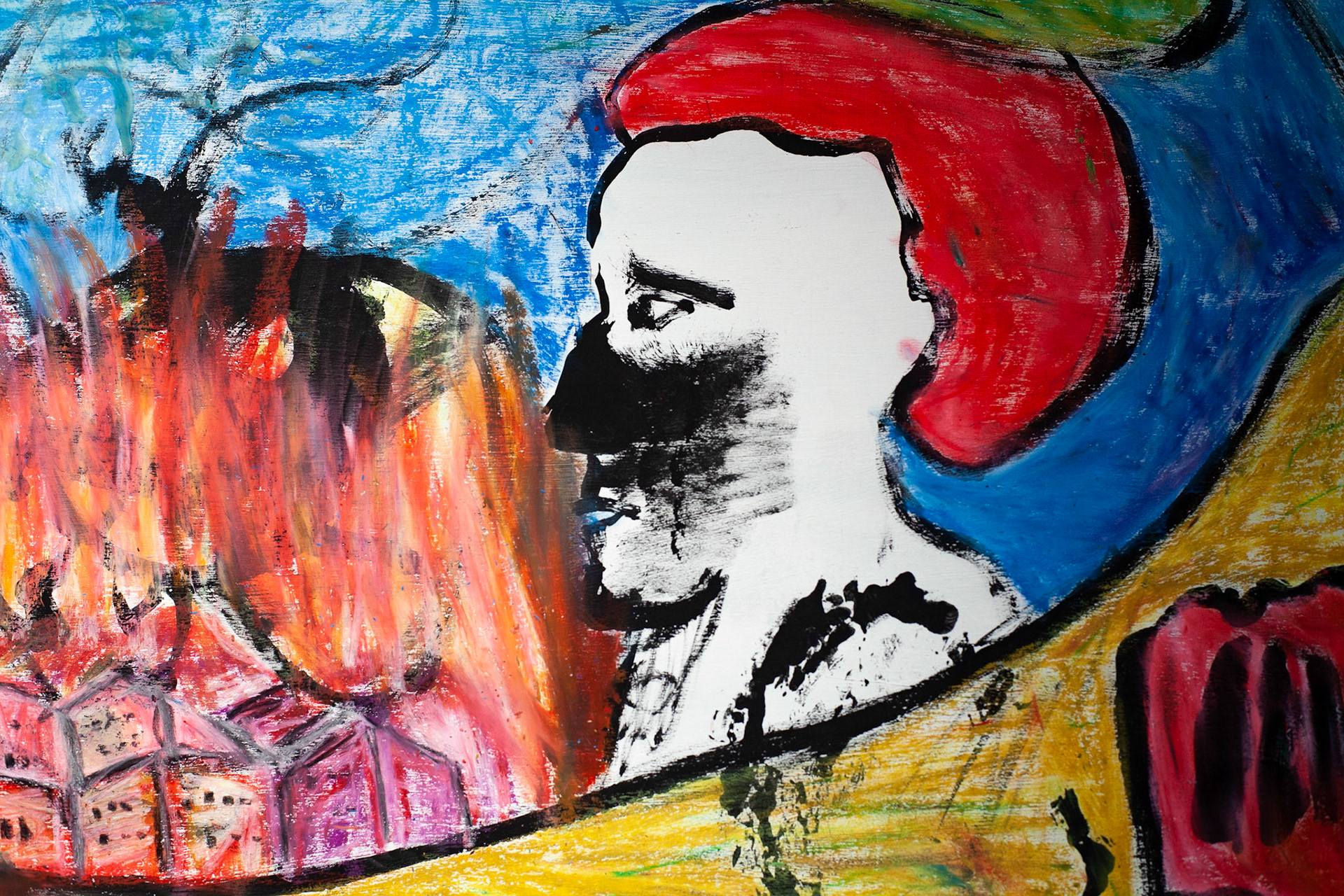
THE POISONED DONKEY
Wax, red strings and ink on rice paper.
Abu Yusef, a Kurdish refugee from Afrin living at the Skaramagas camp in Greece, told me the story of his brother, who went with his donkey to buy bread at the closest bakery. At the time all the shops were outside Kurdish villages, kept under the control of Syrian Arabs. One day, his brother tied the donkey to the tree in front of the bakery. While his brother was buying the bread, someone poisoned his donkey. He tried to go home, but the poor animal would not move. Once he reached home, he could not find his dog. After three days, they found the dog protecting the dead body of the donkey from being eaten by voracious animals.
